All reports
Amyotrophic lateral sclerosis
·
Jan 23, 2025
Understanding amyotrophic lateral sclerosis: a guide for patients
An essential guide to ALS: understanding what it is, treatment options and steps towards empowerment and hope
Reports are in beta and continually improving. They are not a substitute for professional medical advice. Please contact us to give feedback.

Stay informed
This report was published in our weekly newsletter and on our community page. Follow to stay up to date with the latest news and research relevant to your condition.
Listen to the audio version
Introduction
This information is designed to help you better understand amyotrophic lateral sclerosis (ALS), a complex and challenging disease. It will explain the condition in simple terms and offer guidance and support as you navigate this journey. It is important to remember that every individual's experience with ALS is unique, and this information should be considered a starting point for your own learning and discussions with your healthcare team.
What is ALS?
Amyotrophic lateral sclerosis (ALS), often called Lou Gehrig's disease, is a disease that primarily affects the nerve cells in your brain and spinal cord that control voluntary muscle movement. However, it can also involve other parts of the nervous system [1]. These nerve cells, called motor neurons, allow you to move, speak, eat, and breathe [2]. It's important to note that ALS only affects voluntary muscle movements, meaning it doesn't impact involuntary functions like your heartbeat or digestion [3]. In ALS, these motor neurons gradually degenerate and die [3]. This means that the messages from your brain don't reach your muscles properly, leading to weakness, stiffness, and eventually, paralysis [4].
ALS is a progressive disease, meaning it gets worse over time [1]. It does not affect your senses (like sight, hearing, or touch), and it usually doesn't affect your thinking or memory [1].
Breaking Down the Medical Terms
The name "amyotrophic lateral sclerosis" may seem daunting, but understanding what each word means can make it less intimidating. Let's break it down [6]:
Amyotrophic: This comes from Greek words meaning "no muscle nourishment." Imagine your motor neurons as delivery trucks carrying essential supplies to your muscles. In ALS, these trucks break down, and the muscles don't receive the nourishment they need to function correctly, leading to weakness and wasting away.
Lateral: This refers to the location of the damaged nerve cells in the spinal cord. If you picture the spinal cord as a highway, these cells are like lanes on the sides of the highway.
Sclerosis: This means "hardening" and refers to the scarring that occurs in the spinal cord as nerve cells die. Think of it like potholes forming on the highway, disrupting the smooth flow of traffic.
Symptoms of ALS
ALS can start in different ways for different people. Some people first notice weakness in their arms or legs, while others may have trouble speaking or swallowing [7]. Common early symptoms include:
Muscle weakness or stiffness: This can make it difficult to perform everyday tasks like buttoning your shirt, turning a doorknob, or walking up stairs.
Slurred speech: This can make it hard to communicate clearly with others and can affect social interactions.
Difficulty swallowing: This can make it challenging to eat and drink, and may increase the risk of choking or aspiration.
Muscle cramps or twitches: These can be painful and may occur in the arms, legs, or tongue.
Unintentional weight loss: This can occur due to muscle wasting or difficulty swallowing.
As the disease progresses, these symptoms worsen, and new symptoms may appear. These can include:
Difficulty chewing: This can make it hard to eat a variety of foods and may require changes to your diet [8].
Drooling: This can occur due to weakness in the muscles that control swallowing [8].
Shortness of breath: This can occur as the muscles involved in breathing weaken [8].
Eventually, people with ALS may lose the ability to walk, talk, eat, and breathe on their own [8].
How is ALS Diagnosed?
Diagnosing ALS can be challenging because its symptoms can be similar to those of other neurological conditions. Doctors use a variety of tests to rule out other diseases and confirm an ALS diagnosis. These tests may include:
Neurological examination: This involves checking your reflexes, muscle strength, coordination, and sensation.
Electromyography (EMG): This test measures the electrical activity in your muscles.
Nerve conduction study (NCS): This test measures how well your nerves transmit signals.
Magnetic resonance imaging (MRI): This imaging test creates detailed pictures of your brain and spinal cord.
Blood and urine tests: These tests can help rule out other conditions.
Treatment Options
Currently, there is no cure for ALS [1]. However, there are treatments available that can help manage symptoms, slow the progression of the disease, and improve quality of life. These treatments may include:
Medications
Riluzole (Rilutek), edaravone (Radicava), sodium phenylbutyrate-taurursodial (Relyvrio), and Qalsody (tofersen) are FDA-approved medications that may help slow the progression of ALS [1].
Other medications can help manage symptoms such as muscle cramps, spasticity, and excessive saliva [10].
Therapies
Physical therapy can help maintain muscle strength and flexibility [10].
Occupational therapy can help you adapt to daily tasks as your abilities change.
Speech therapy can help with communication difficulties.
Respiratory therapy can help with breathing problems.
Nutritional counseling can ensure you get the nutrients you need [10].
Supportive care
This includes a wide range of services to help you and your family cope with the physical and emotional challenges of ALS.
Prognosis and Coping
The prognosis for ALS varies from person to person [11]. The average life expectancy after diagnosis is two to five years, but some people live much longer [7]. Factors that may affect prognosis include age at onset, the location of initial symptoms, and the rate of disease progression [12]. While ALS affects physical abilities, it generally doesn't impair cognitive function, so you can continue to engage in activities that stimulate your mind and bring you joy [13].
Coping with ALS is an ongoing process. It's important to allow yourself time to adjust to the diagnosis and grieve the losses you may experience [14]. Remember that you are not alone. There are people who care about you and want to help.
Clinical Trials and Research Studies
Researchers are constantly working to find new treatments and a cure for ALS [15]. Clinical trials are research studies that test new drugs and therapies in people. Participating in a clinical trial can give you access to promising new treatments and contribute to the advancement of ALS research [15]. One notable example is the HEALEY ALS Platform Trial, an innovative approach that allows researchers to test multiple drugs simultaneously, accelerating the discovery of effective treatments [16].
There are also many research studies that are not clinical trials. These studies may involve observing people with ALS over time, collecting biological samples, or studying genetic factors [15]. For example, one study is investigating the changes that occur in biomarkers (measurable indicators of change in the body) when people with ALS take Radicava [17]. These studies help researchers learn more about the disease and develop new treatments.
Resources for Patients and Families
There are many organizations that provide support and resources for people with ALS and their families. Here are a few:
The ALS Association: Provides support, resources, and advocacy for people with ALS and their families.
Website: www.alsa.orgThe Muscular Dystrophy Association (MDA): Offers support groups, clinics, and research funding for ALS.
Website: www.mda.orgALS TDI: A non-profit organization dedicated to finding a cure for ALS.
Website: www.alstdi.orgCompassionate Care ALS (CCALS): Offers a holistic range of services for people with ALS and their families.
Website: www.ccals.orgI AM ALS: A patient-led community that provides support and resources.
Website: www.iamals.orgALS Care Connection: A private online calendar that helps families organize volunteers to assist with caregiving tasks.
Website: www.alsa.org/als-care/resources/als-care-connection
Living with ALS
Living with ALS can be challenging, but there are ways to cope with the disease and maintain a good quality of life. One inspiring example is Sandra, an artist and performer who adapted her creative pursuits after being diagnosed with ALS [18]. Her story reminds us that ALS doesn't have to define who we are, and we can find ways to continue pursuing our passions.
Here are some tips for living with ALS:
Stay informed: Learn as much as you can about ALS and the resources available to you.
Connect with others: Join a support group or connect with other people with ALS online [19]. Sharing your experiences and feelings with others can be incredibly helpful.
Maintain a positive attitude: Focus on the things you can still do and enjoy.
Conclusion
ALS is a complex and challenging disease, but it's important to remember that you are not alone. With the right support and resources, you can live a fulfilling life with ALS. Stay informed, connect with others, and maintain a positive attitude. There is hope for the future, and researchers are working tirelessly to find new treatments and a cure. Remember that ALS doesn't have to define who you are. Like Sandra, the artist who continued to pursue her passion after her diagnosis, you can find ways to adapt and live a meaningful life [18]. Lean on your support system, engage in activities that bring you joy, and stay hopeful. The journey with ALS may be challenging, but it is also an opportunity for growth, resilience, and connection.
Works cited
1. Amyotrophic Lateral Sclerosis (ALS) | Johns Hopkins Medicine https://www.hopkinsmedicine.org/health/conditions-and-diseases/amyotrophic-lateral-sclerosis-als
2. Motor Neurone - Physiopedia https://www.physio-pedia.com/Motor_Neurone
3. Amyotrophic Lateral Sclerosis (ALS) - Diseases - Muscular Dystrophy Association, https://www.mda.org/disease/amyotrophic-lateral-sclerosis
4. ALS (Amyotrophic Lateral Sclerosis): What It Is & Symptoms - Cleveland Clinic, https://my.clevelandclinic.org/health/diseases/16729-amyotrophic-lateral-sclerosis-als
5. Amyotrophic lateral sclerosis (ALS) Information | Mount Sinai - New York, https://www.mountsinai.org/health-library/diseases-conditions/amyotrophic-lateral-sclerosis-als
6. Muscular Dystrophy Association - What is amyotrophic lateral sclerosis (ALS)? https://www.mda.org/disease/amyotrophic-lateral-sclerosis#what-is-als
7. ALS Life Expectancy: Prognosis and Treatment Options - Verywell Health https://www.verywellhealth.com/als-lou-gehrigs-disease-life-expectancy-2223973
8. Amyotrophic Lateral Sclerosis (ALS) | National Institute of Neurological Disorders and Stroke, https://www.ninds.nih.gov/health-information/disorders/amyotrophic-lateral-sclerosis-als
9. Medications for Treating ALS | The ALS Association, https://www.als.org/navigating-als/living-with-als/medications
10. Treatment of ALS - Packard Center, https://packardcenter.org/about-als/treatment-of-als/
11. How is ALS Diagnosed and Treated? | ALS Program at HSS https://www.hss.edu/condition-list_amyotrophic-lateral-sclerosis.asp
12. Stages of ALS | The ALS Association https://www.als.org/understanding-als/stages
13. Amyotrophic lateral sclerosis (ALS) - Symptoms and causes - Mayo Clinic https://www.mayoclinic.org/diseases-conditions/amyotrophic-lateral-sclerosis/symptoms-causes/syc-20354022
14. Coping with ALS - MDA-ALS Center - University of Pittsburgh https://www.alsclinic.pitt.edu/patient-issues/coping-als
15. What Are Clinical Trials? - The ALS Association https://www.als.org/research/clinical-trials-for-patients
16. What's the Latest on ALS Research and Clinical Trials? - Mass General Brigham, https://www.massgeneralbrigham.org/en/about/newsroom/articles/whats-the-latest-on-als-research-and-clinical-trials
17. ALS Research Notification for Clinical Trials and Studies | National ALS Registry - CDC https://www.cdc.gov/als/abouttheregistrymain/active-alsclinicalresearchnotification.html
18. Sandra's Story: An Artist Living with ALS - YouTube, https://www.youtube.com/watch?v=CCTZISHa4oU
19. Online Groups -ALS Ride For Life https://alsrideforlife.org/programs-assistance/online-groups/

Gaucher disease
·
Inclusion of Gaucher disease in newborn screening panels across the U.S.
Apr 9, 2025

Hemophilia
·
Qfitlia: A breakthrough in hemophilia treatment
Apr 3, 2025

Multiple myeloma
·
Navigating clinical trials in multiple myeloma
Apr 2, 2025

Gene and cell therapy
·
An introduction to cell therapy
Mar 25, 2025

Gene and cell therapy
·
An introduction to gene therapy
Mar 19, 2025
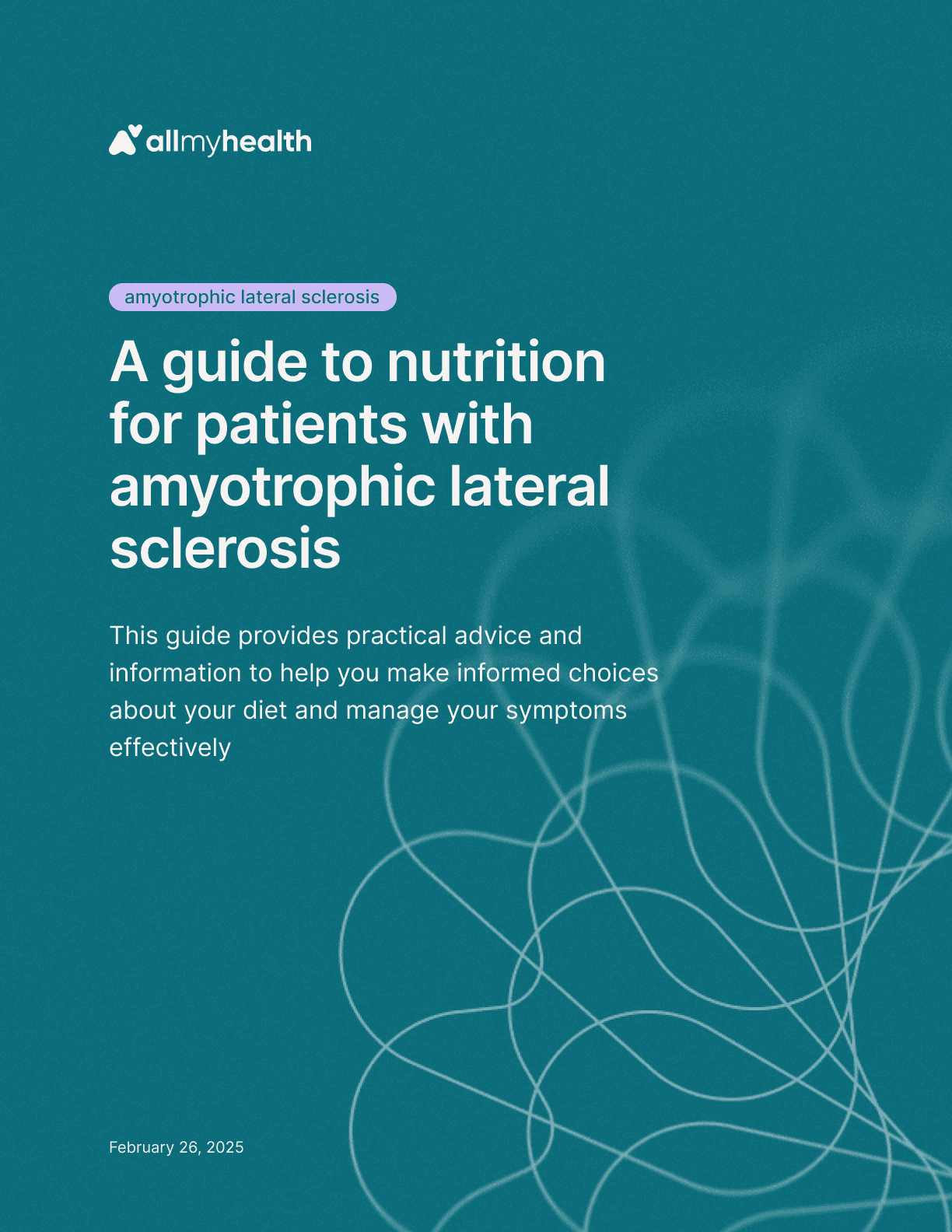
Amyotrophic lateral sclerosis
·
A guide to nutrition for patients with amyotrophic lateral sclerosis
Feb 26, 2025
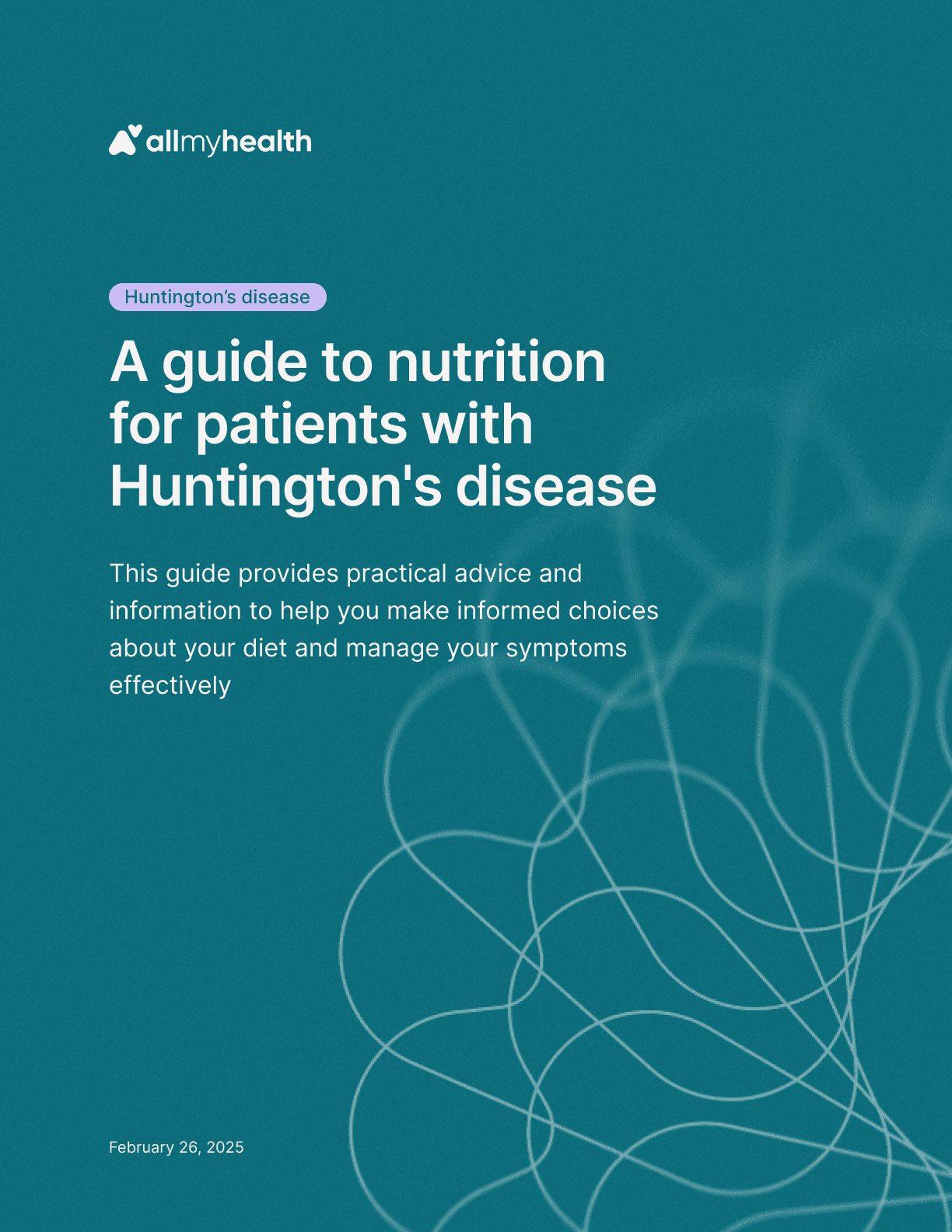
Huntington's disease
·
A guide to nutrition for patients with Huntington's disease
Feb 26, 2025

Spinal muscular atrophy
·
A guide to nutrition for patients with spinal muscular atrophy
Feb 26, 2025
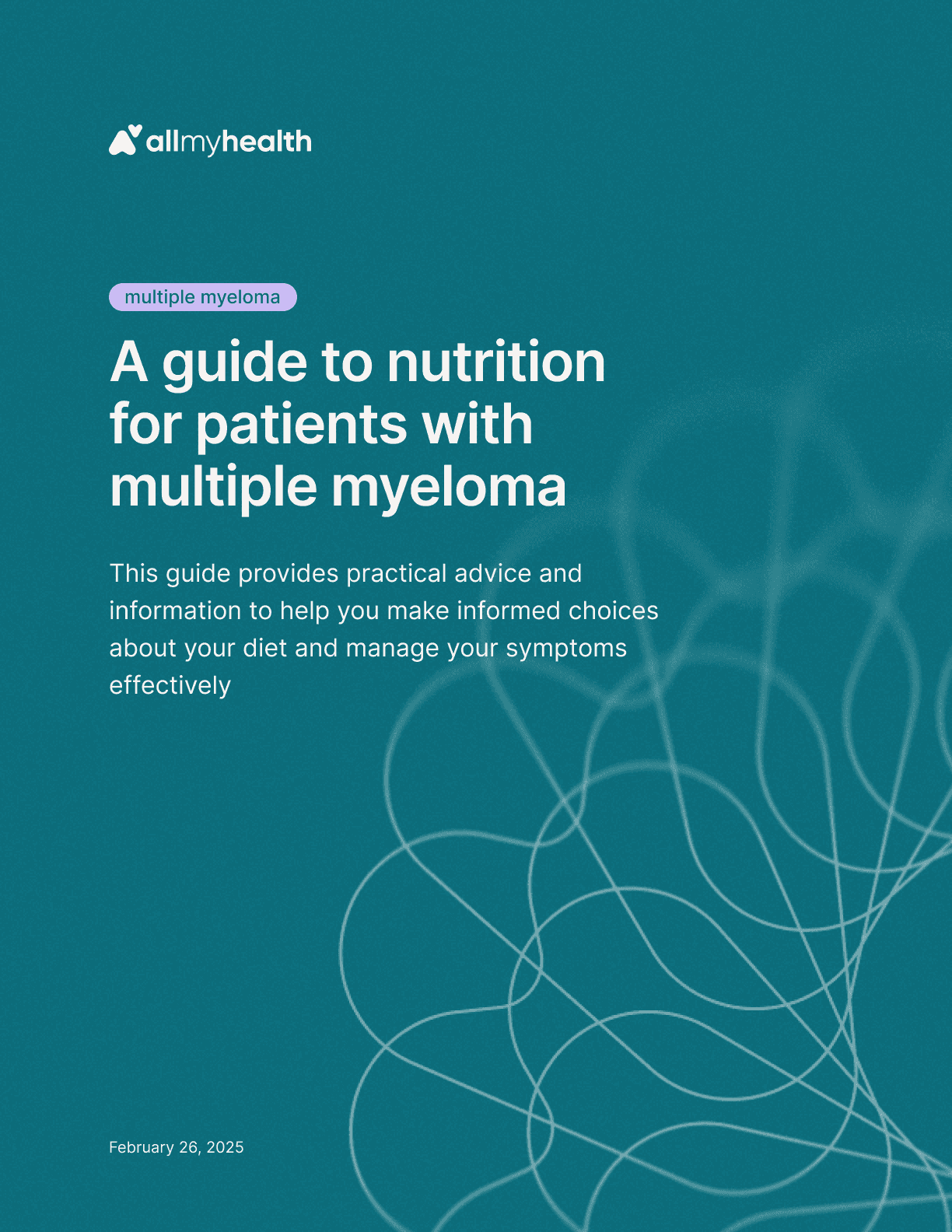
Multiple myeloma
·
A guide to nutrition for patients with multiple myeloma
Feb 26, 2025
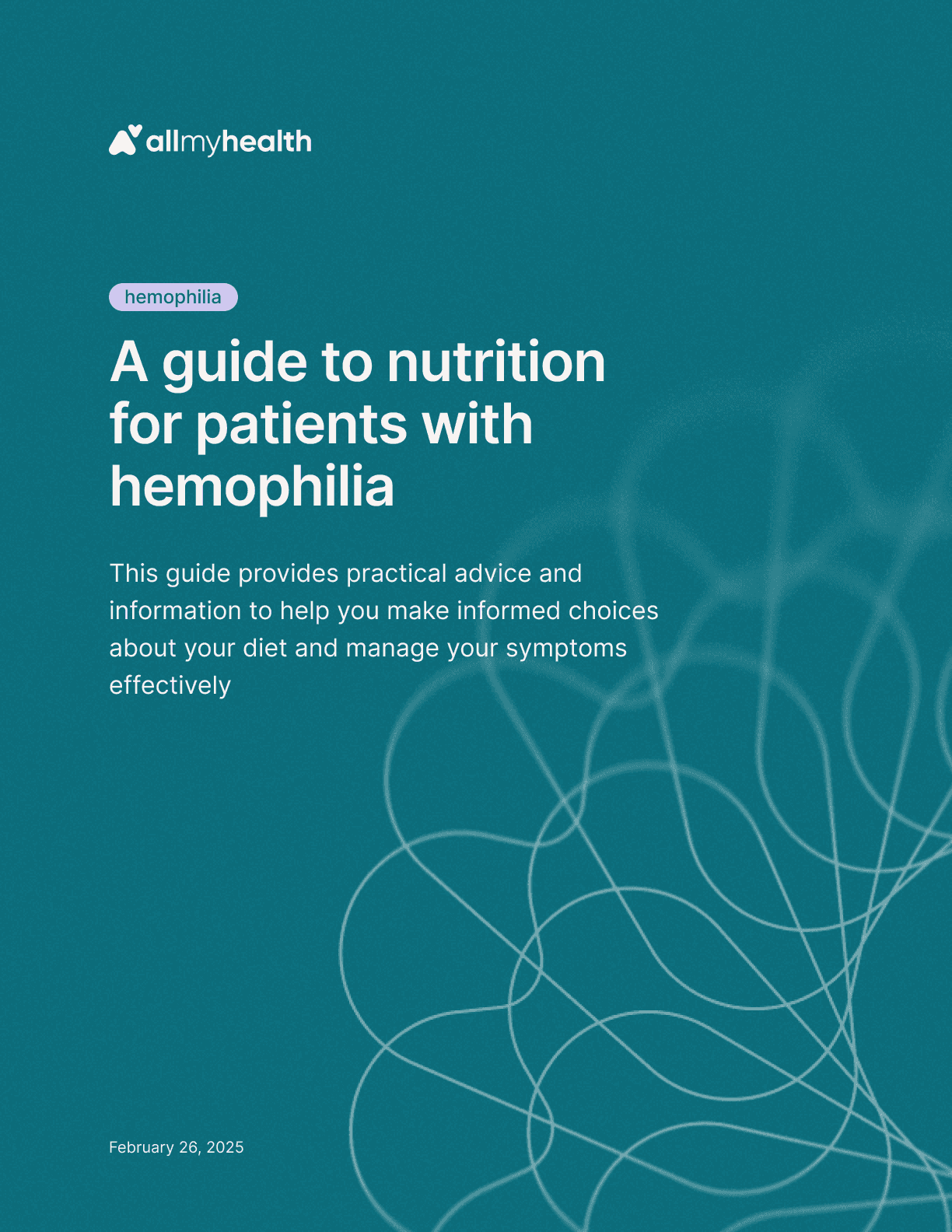
Hemophilia
·
A guide to nutrition for patients with hemophilia
Feb 26, 2025
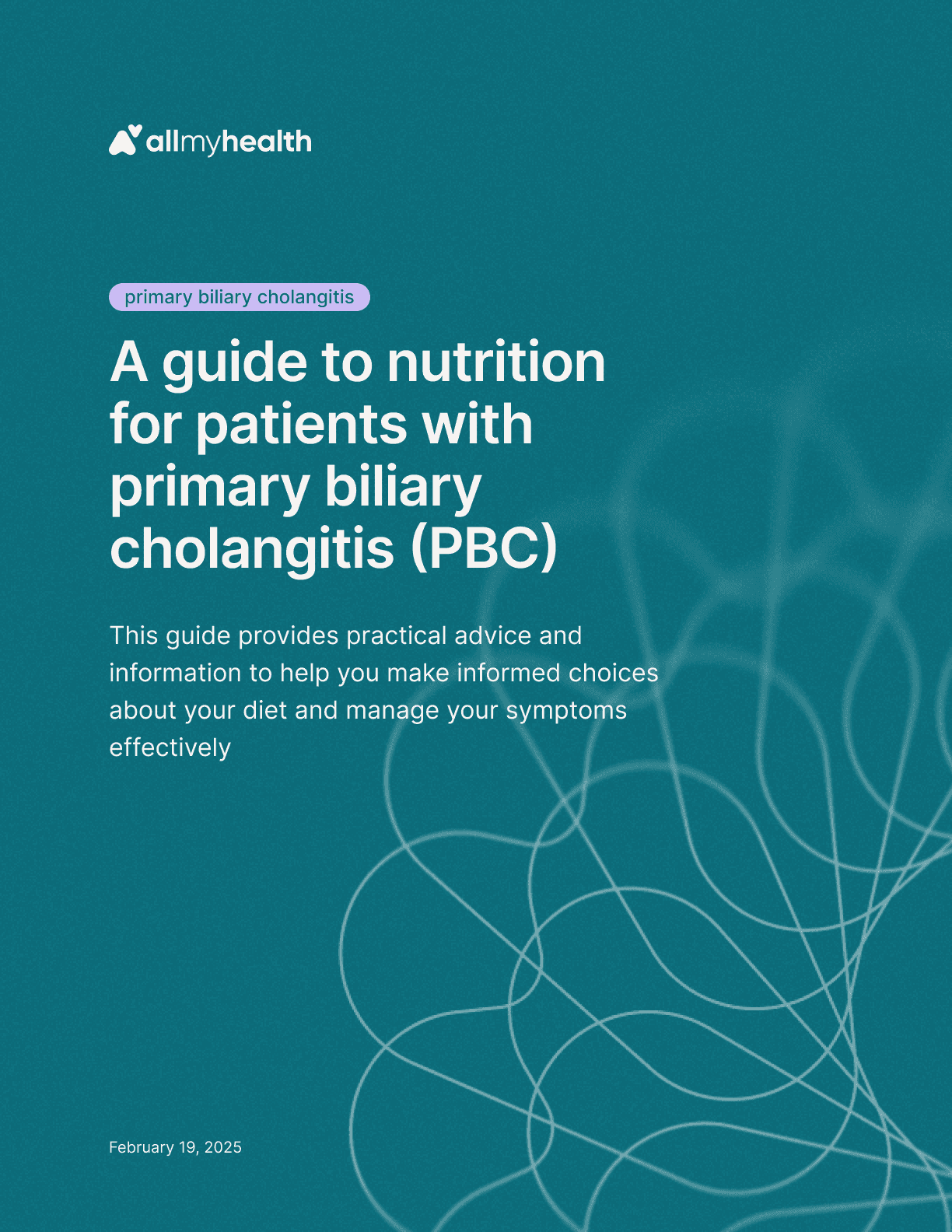
Primary biliary cholangitis
·
A guide to nutrition for patients with primary biliary cholangitis (PBC)
Feb 19, 2025
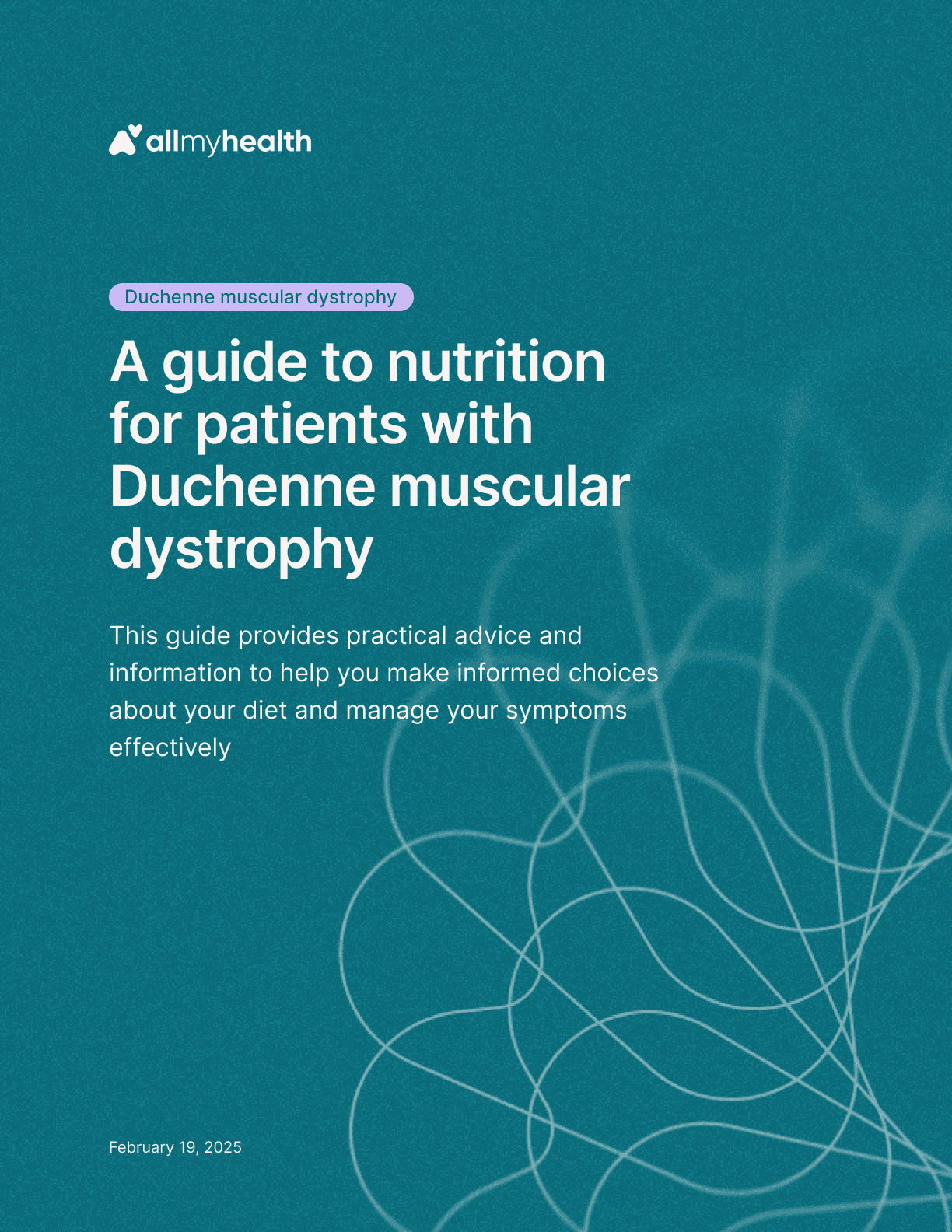
Duchenne muscular dystrophy
·
A guide to nutrition for patients with Duchenne muscular dystrophy
Feb 19, 2025
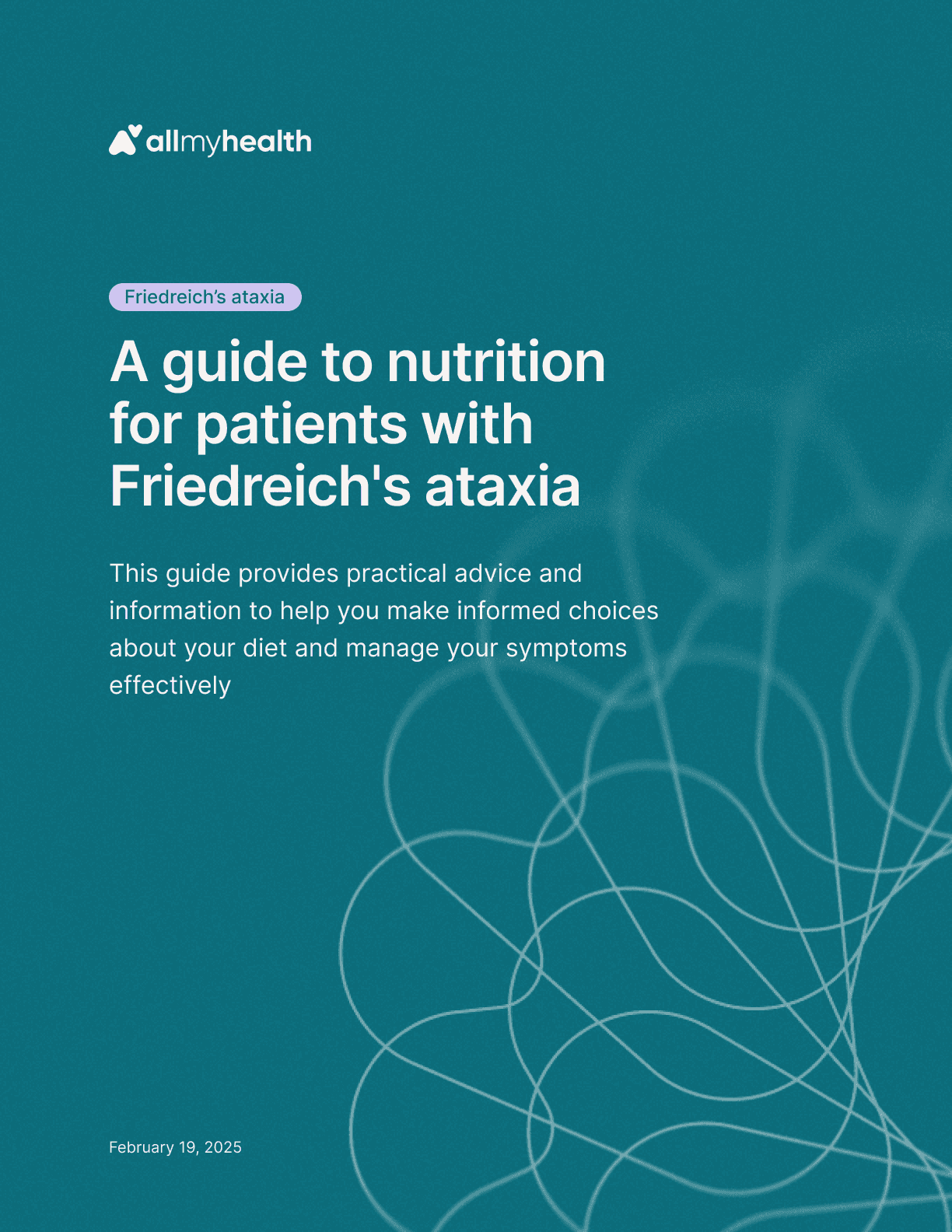
Friedreich's ataxia
·
A guide to nutrition for patients with Friedreich's ataxia
Feb 19, 2025
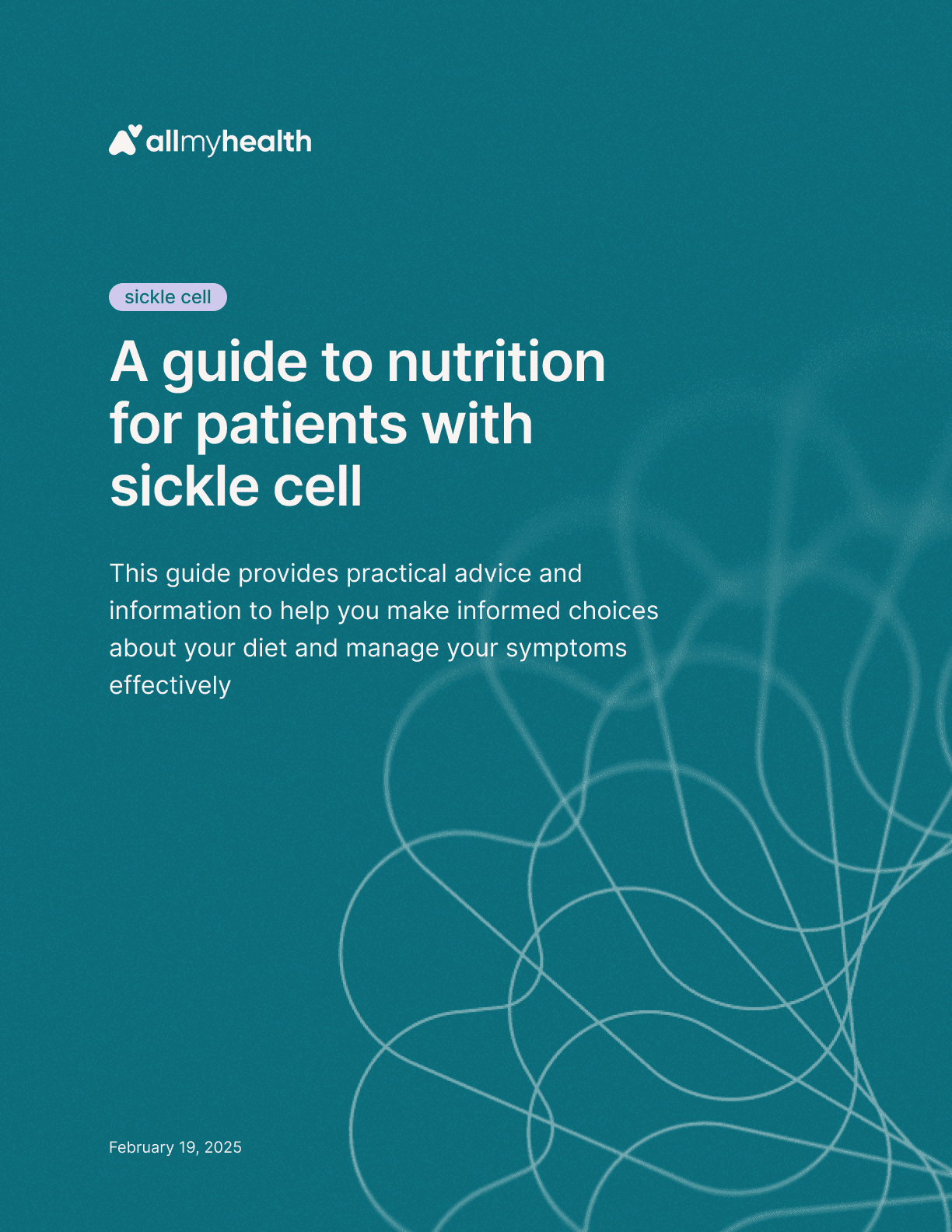
Sickle cell
·
A guide to nutrition for patients with sickle cell
Feb 19, 2025

Mantle cell lymphoma
·
A guide to nutrition for patients with mantle cell lymphoma
Feb 19, 2025
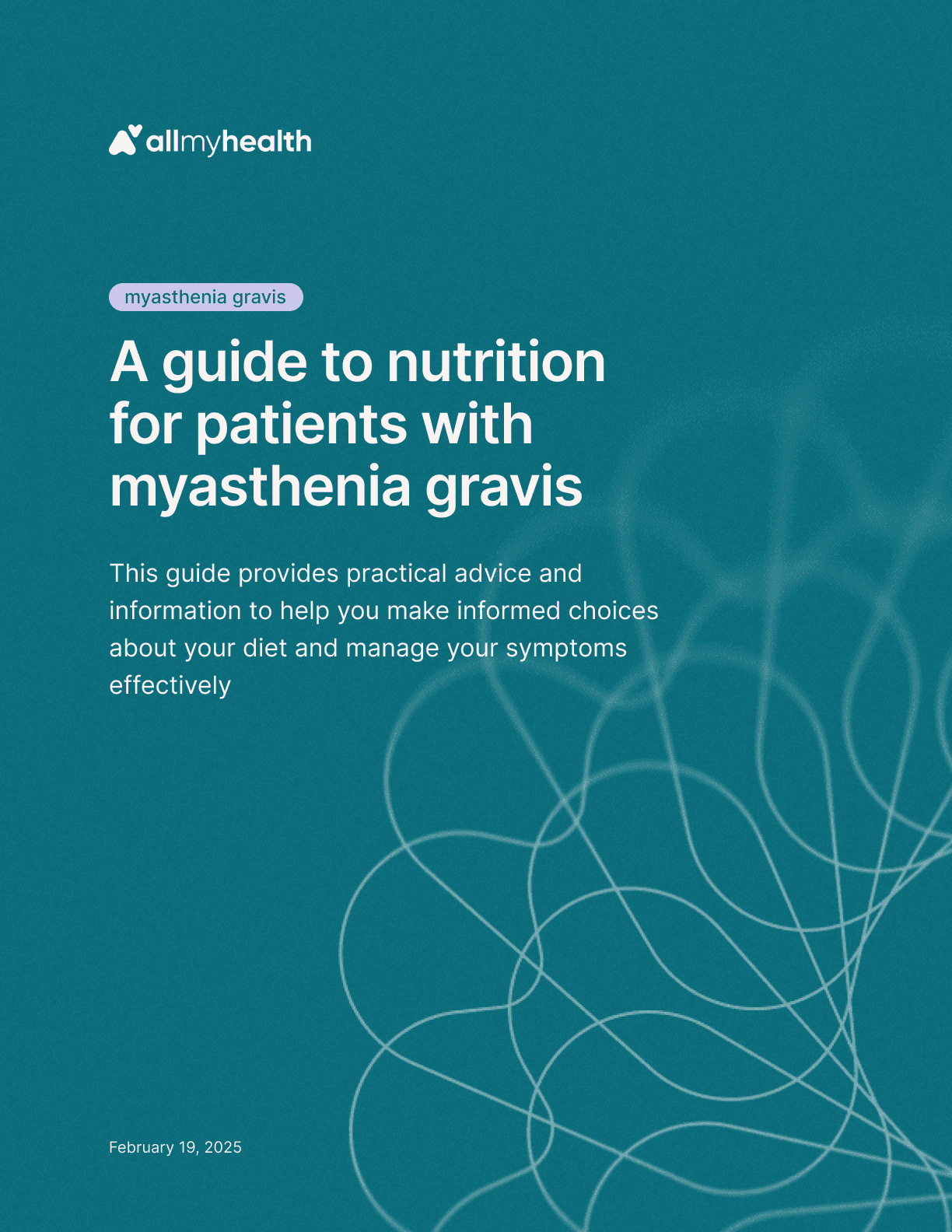
Myasthenia gravis
·
A guide to nutrition for patients with myasthenia gravis
Feb 19, 2025
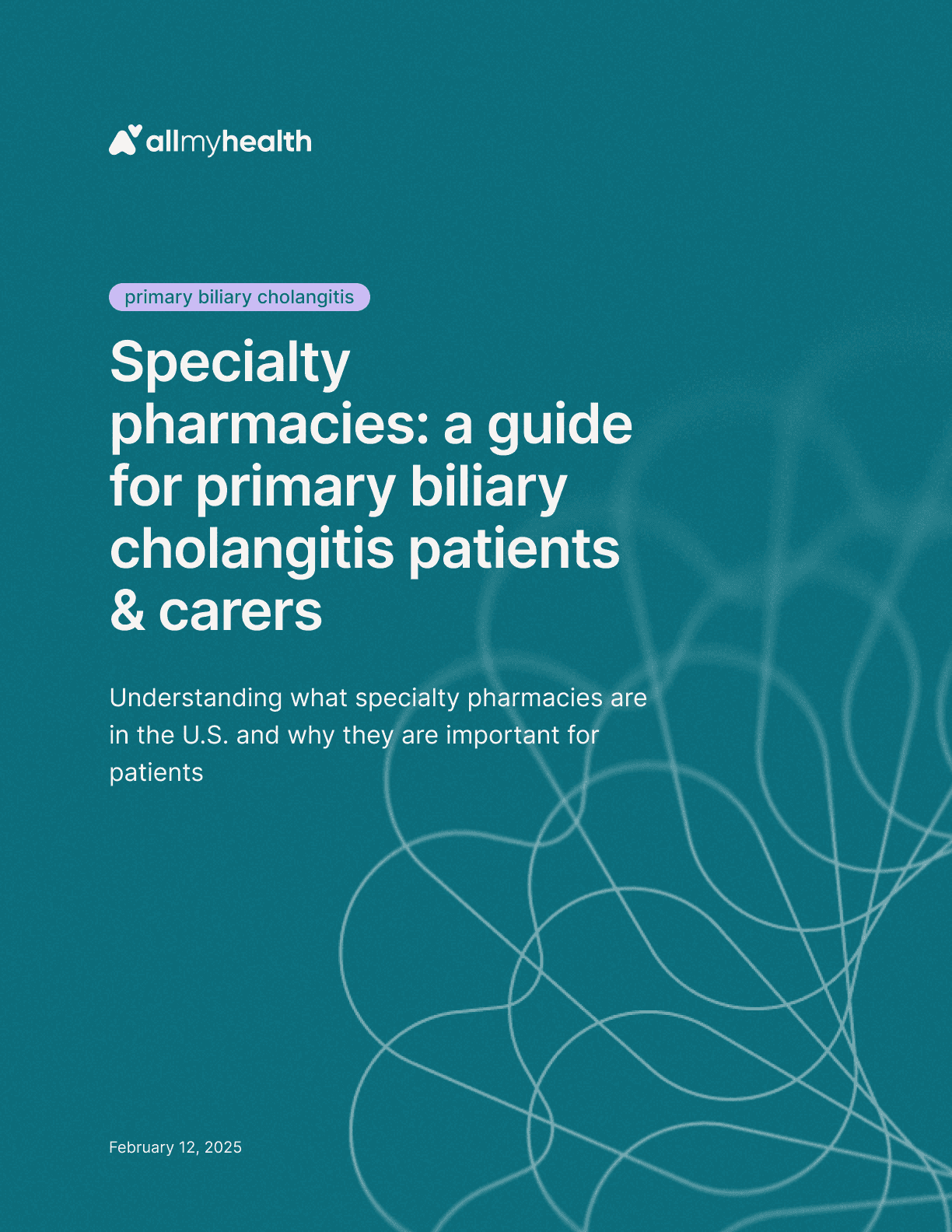
Primary biliary cholangitis
·
Specialty pharmacies: a guide for primary biliary cholangitis patients & carers
Feb 12, 2025
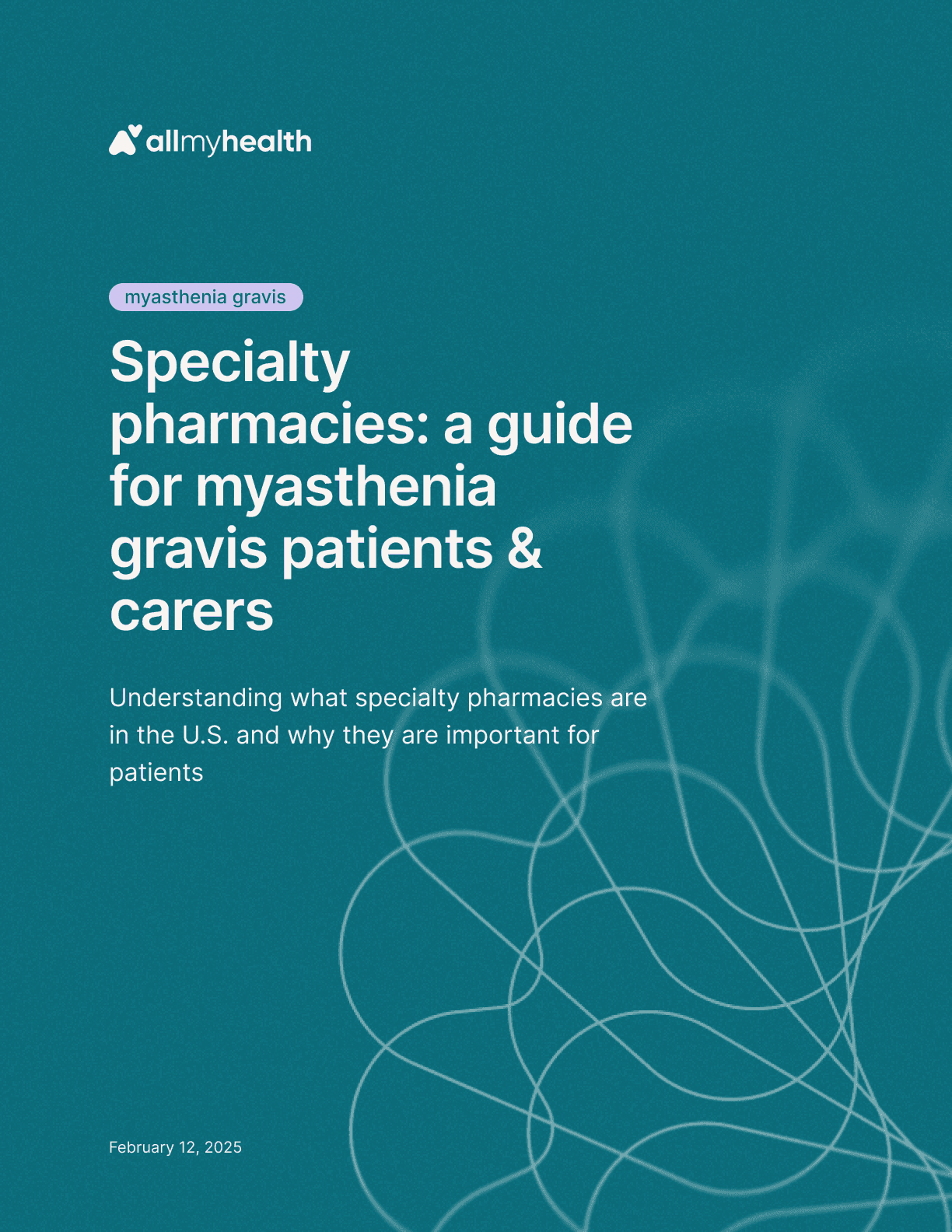
Myasthenia gravis
·
Specialty pharmacies: a guide for myasthenia gravis patients & carers
Feb 12, 2025
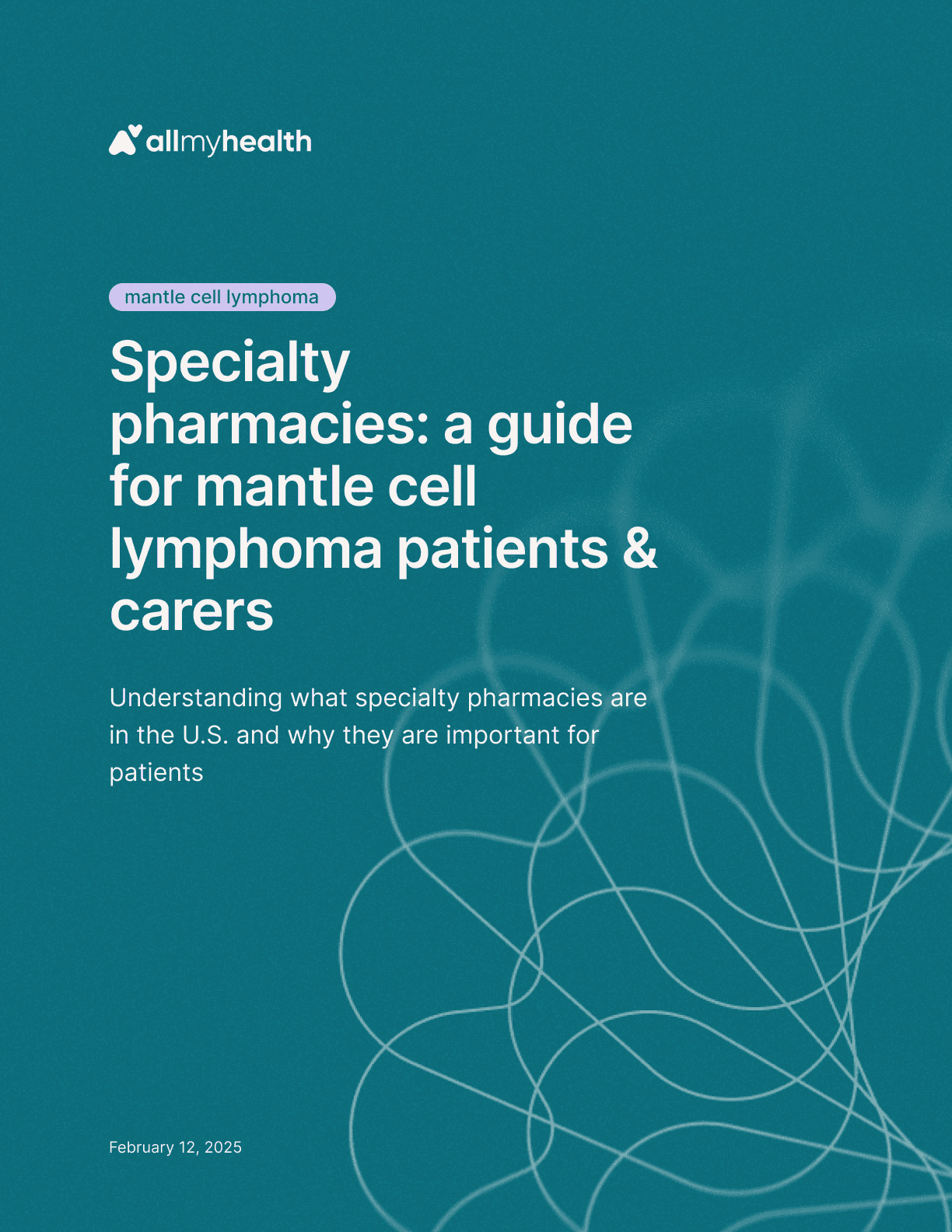
Mantle cell lymphoma
·
Specialty pharmacies: a guide for mantle cell lymphoma patients & carers
Feb 12, 2025
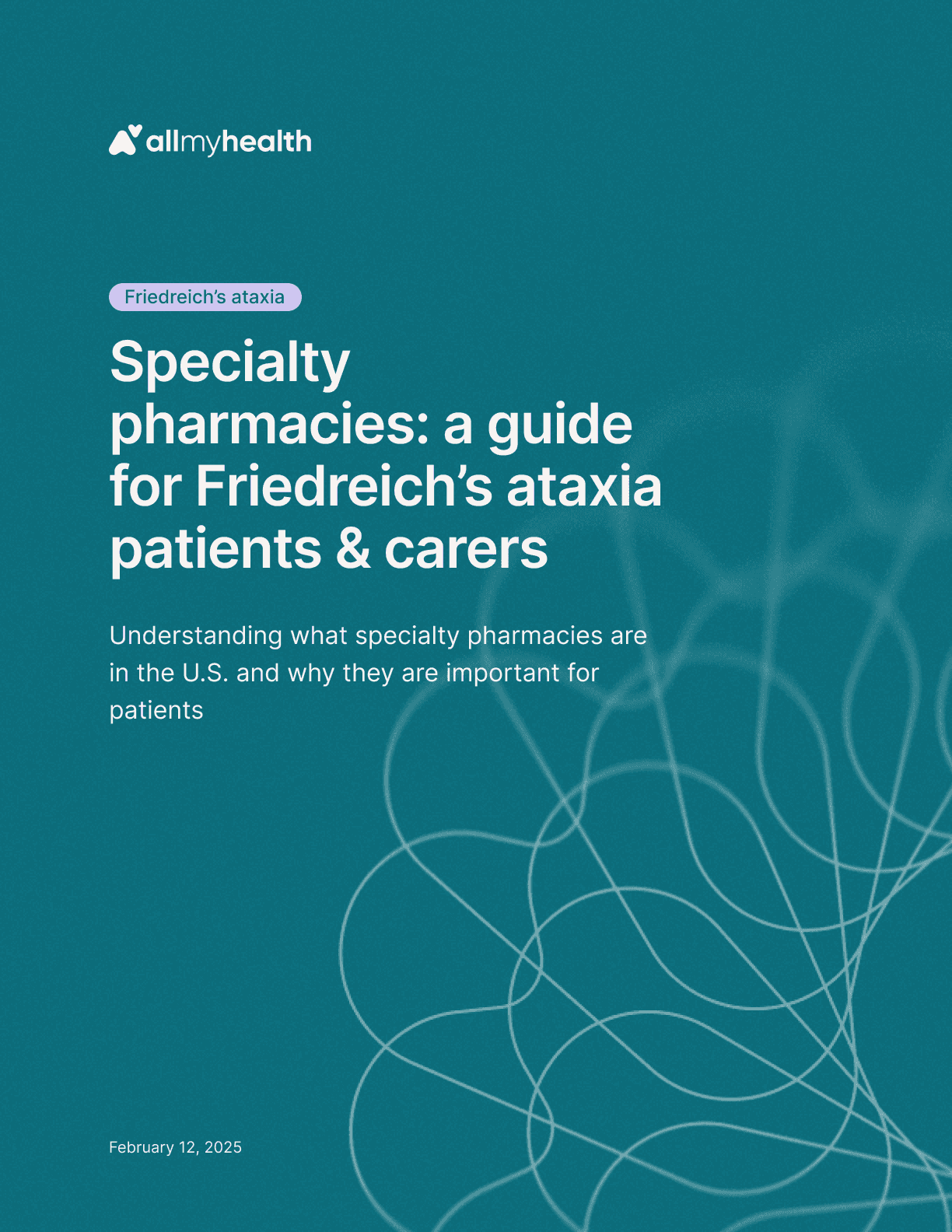
Friedreich's ataxia
·
Specialty pharmacies: a guide for Friedreich’s ataxia patients & carers
Feb 12, 2025
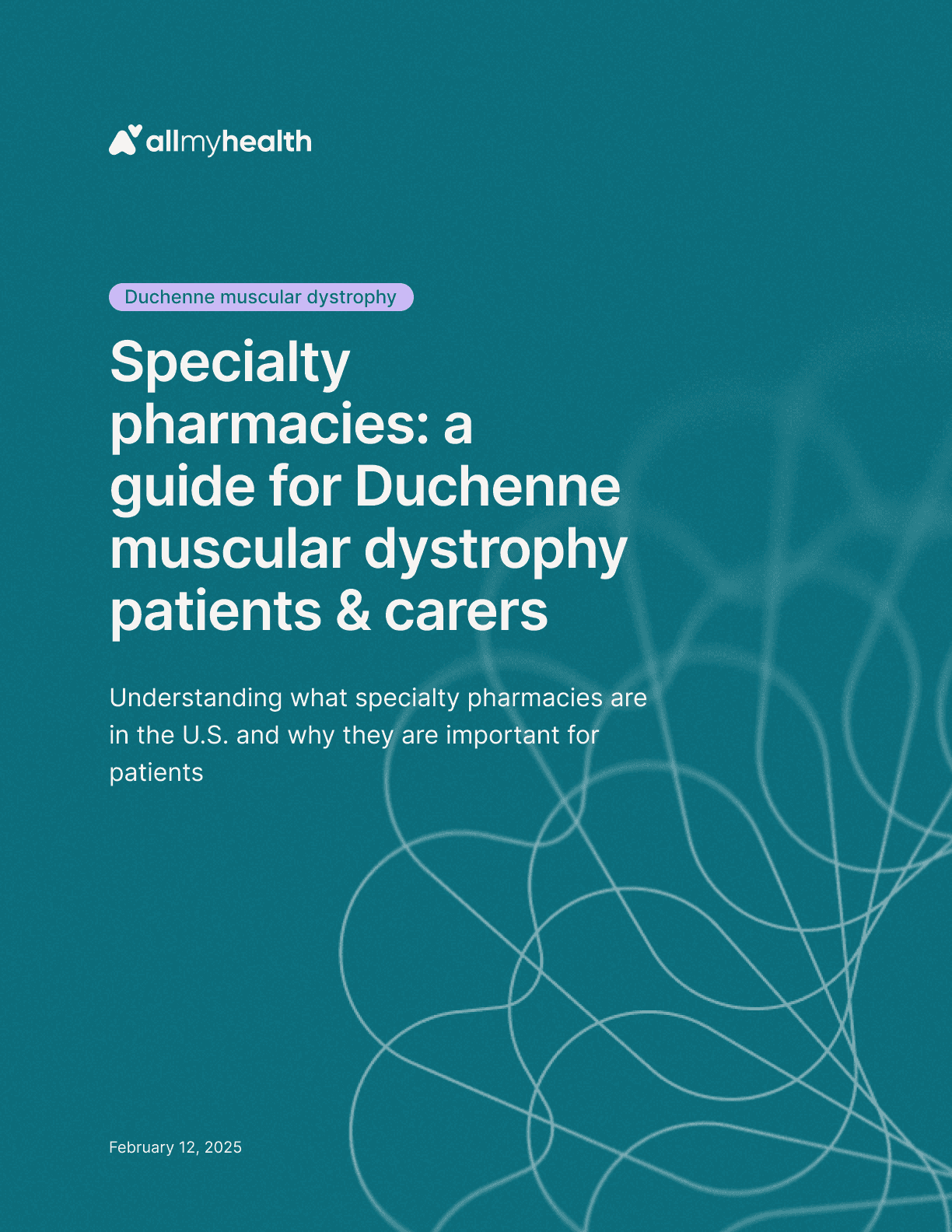
Duchenne muscular dystrophy
·
Specialty pharmacies: a guide for Duchenne muscular dystrophy patients & carers
Feb 12, 2025

Spinal muscular atrophy
·
Specialty pharmacies: a guide for SMA patients & carers
Feb 6, 2025
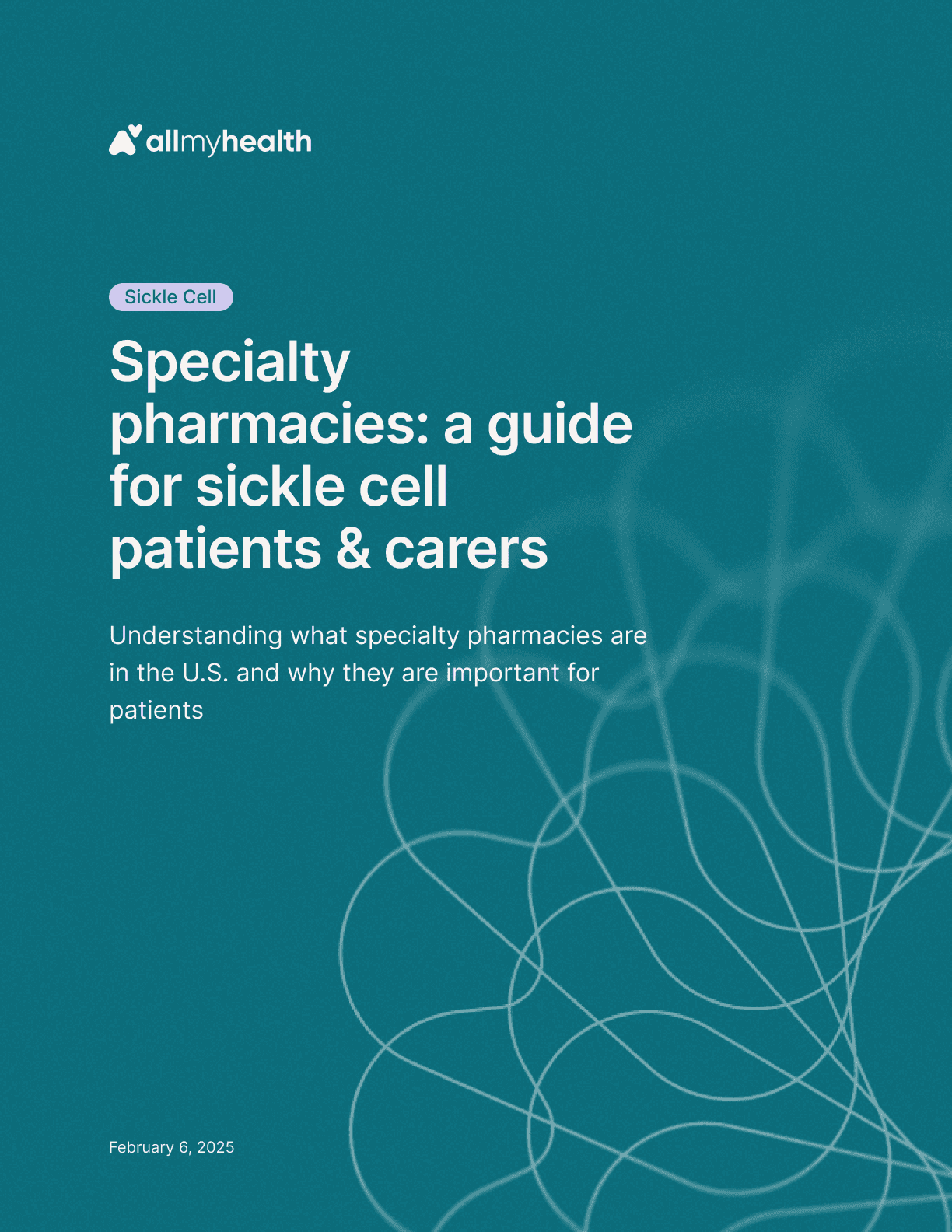
Sickle cell
·
Specialty pharmacies: a guide for sickle cell patients & carers
Feb 6, 2025
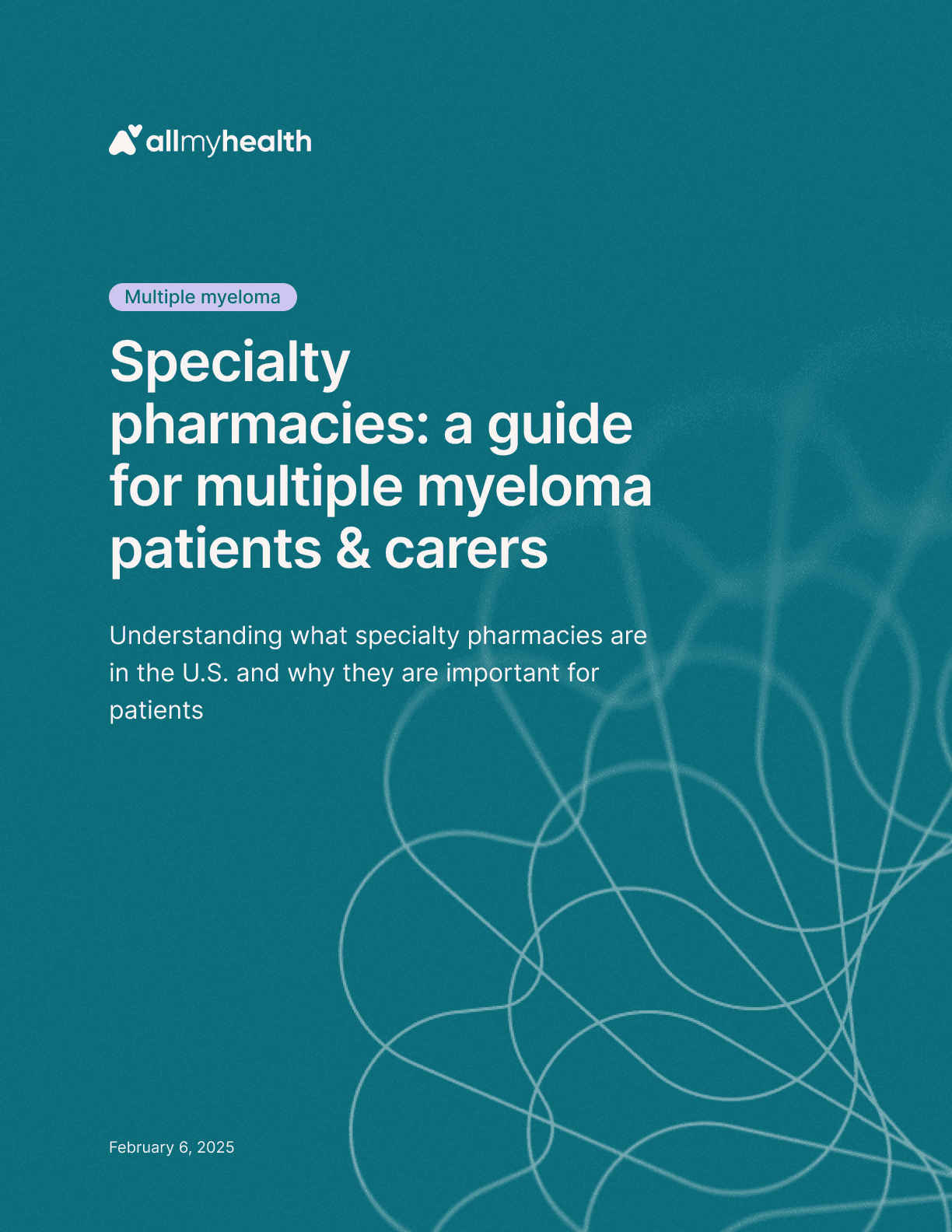
Multiple myeloma
·
Specialty pharmacies: a guide for multiple myeloma patients & carers
Feb 6, 2025
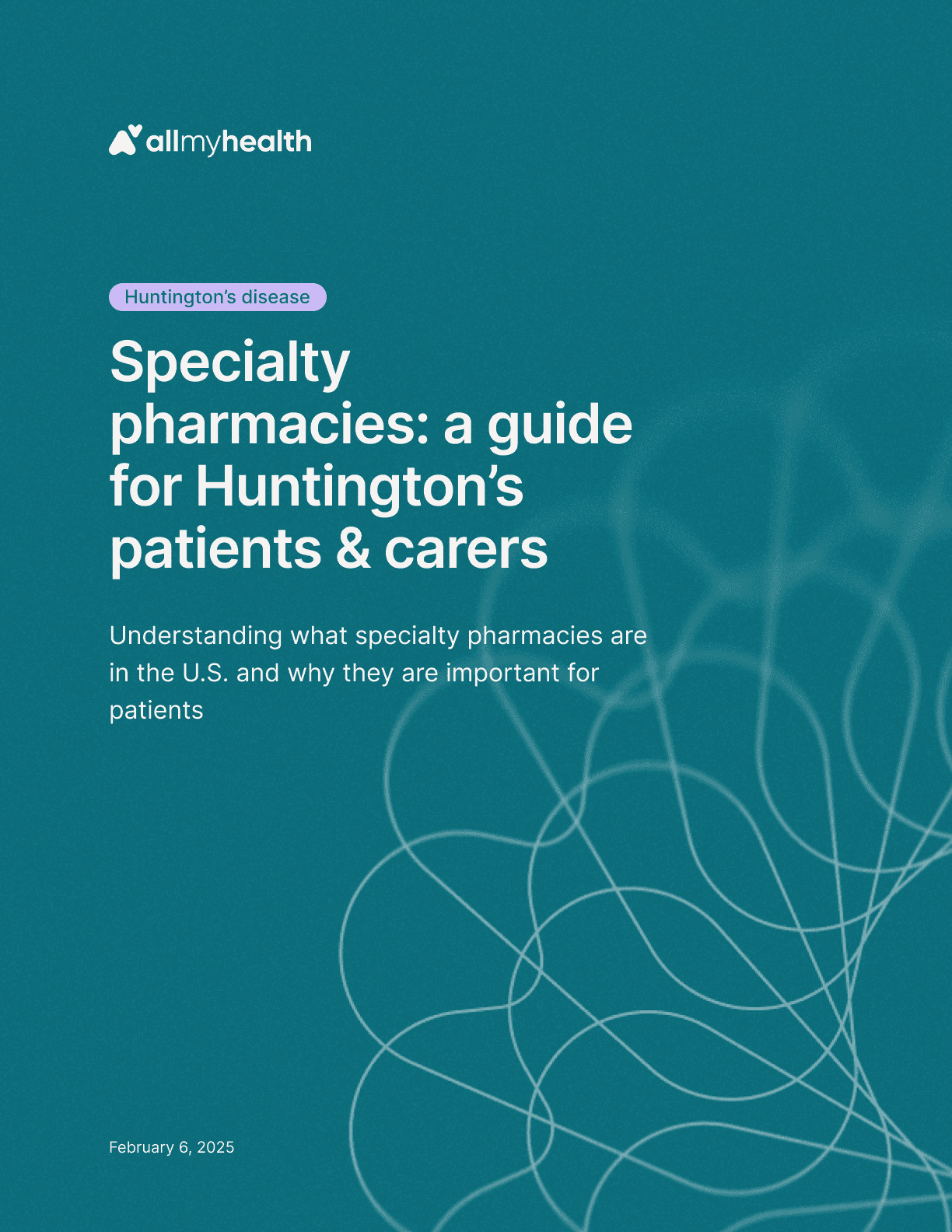
Huntington's disease
·
Specialty pharmacies: a guide for Huntington’s disease patients & carers
Feb 6, 2025
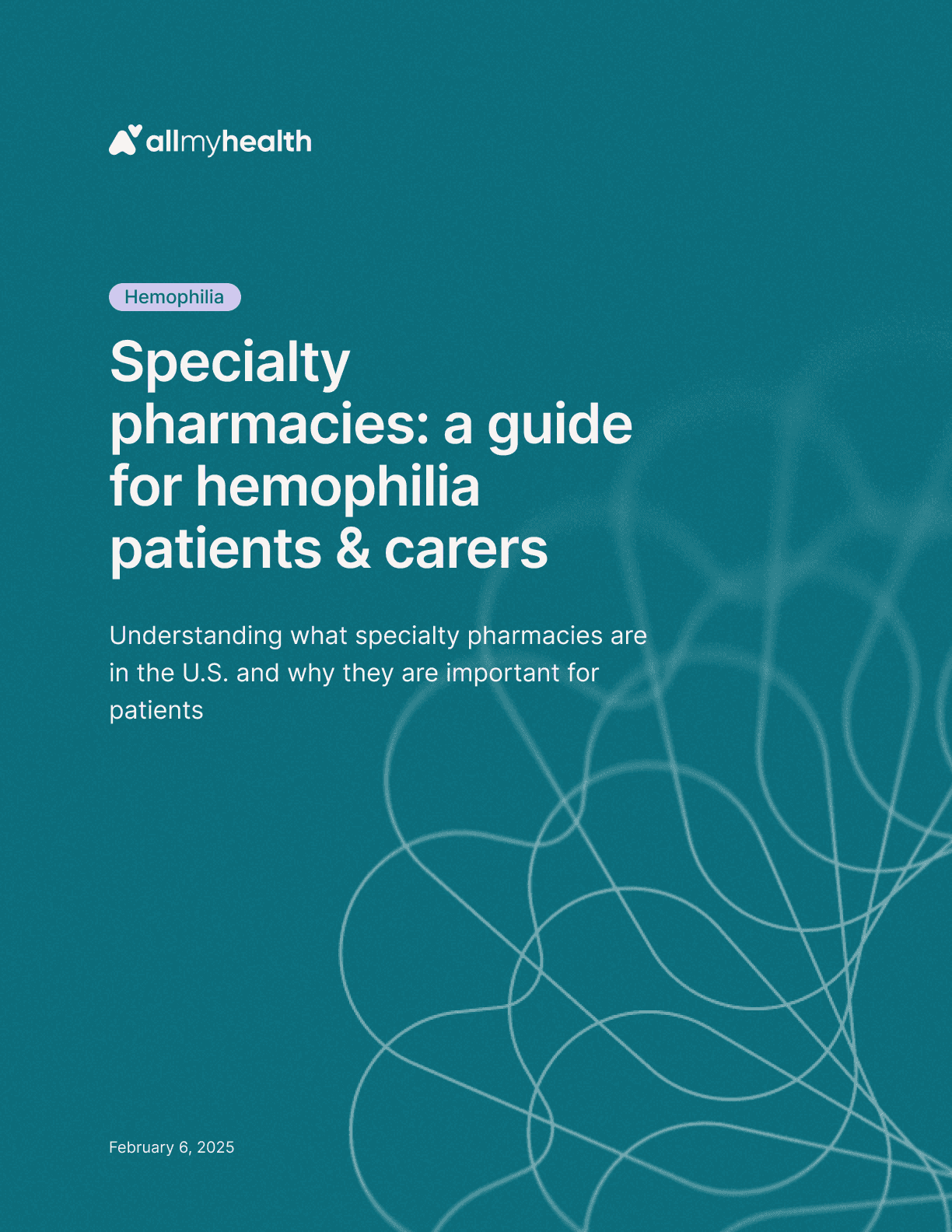
Hemophilia
·
Specialty pharmacies: a guide for hemophilia patients & carers
Feb 6, 2025

Amyotrophic lateral sclerosis
·
Specialty pharmacies: a guide for ALS patients & carers
Feb 6, 2025
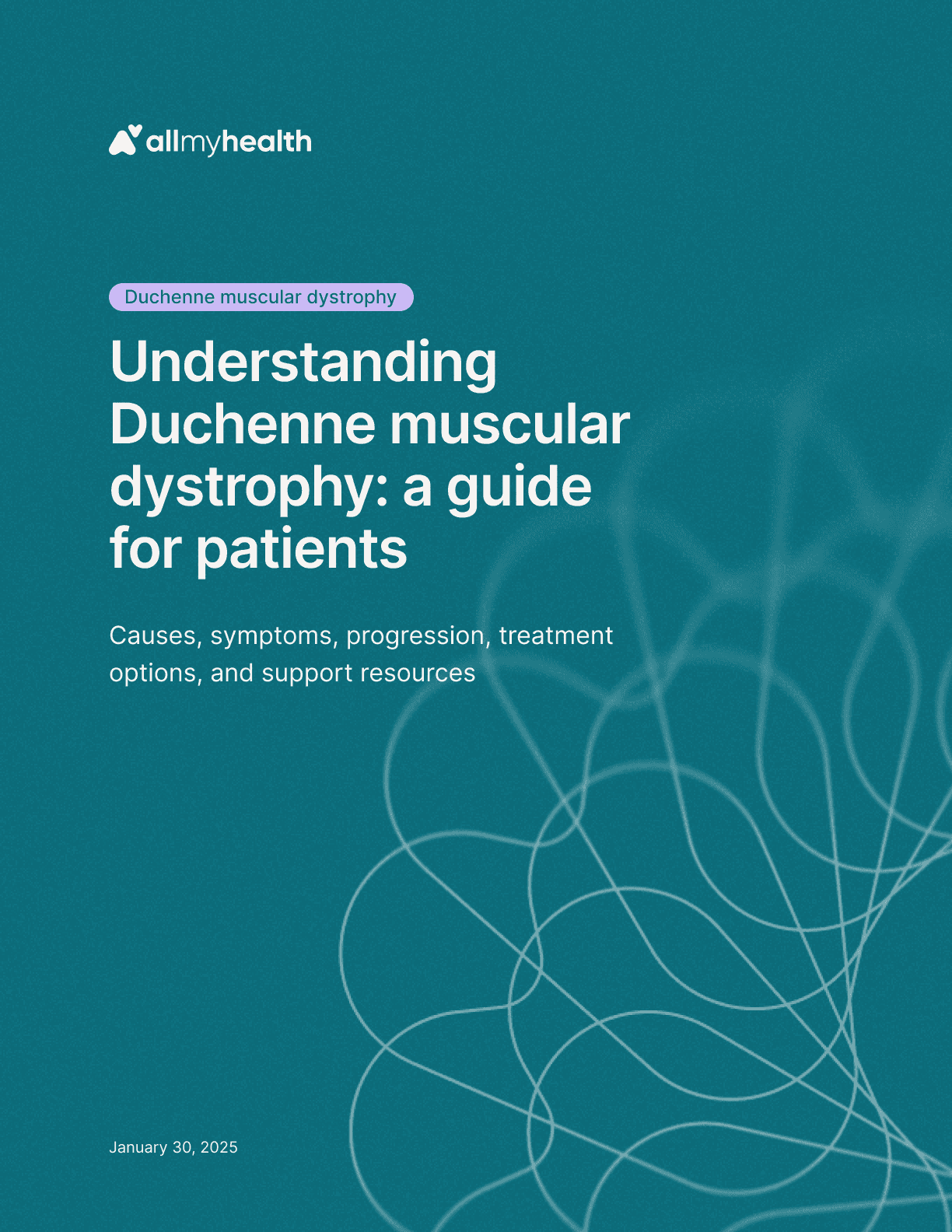
Duchenne muscular dystrophy
·
Understanding Duchenne muscular dystrophy: a guide for patients
Jan 30, 2025
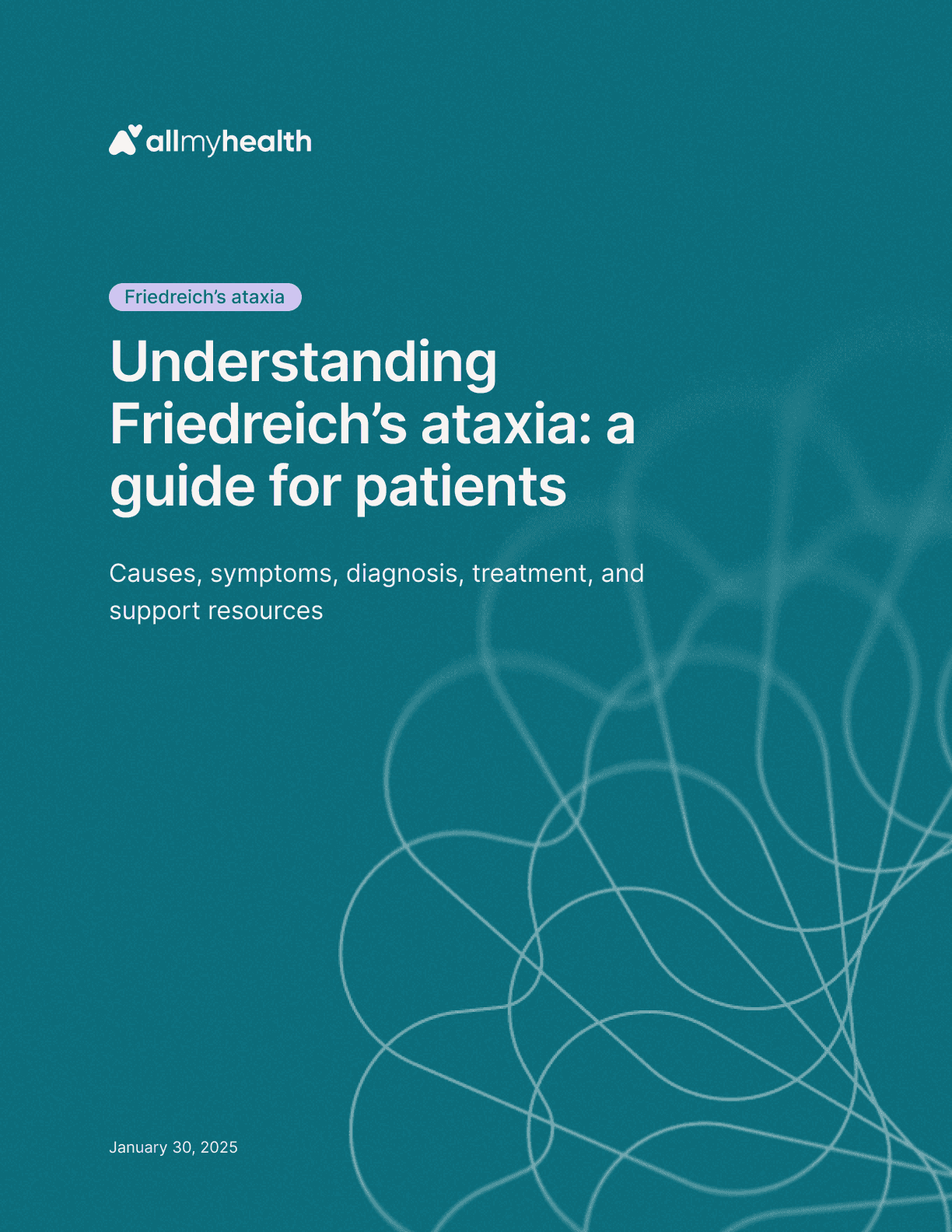
Friedreich's ataxia
·
Understanding Friedreich's ataxia: a guide for patients
Jan 30, 2025

Hemophilia
·
Understanding hemophilia: a guide for patients
Jan 30, 2025
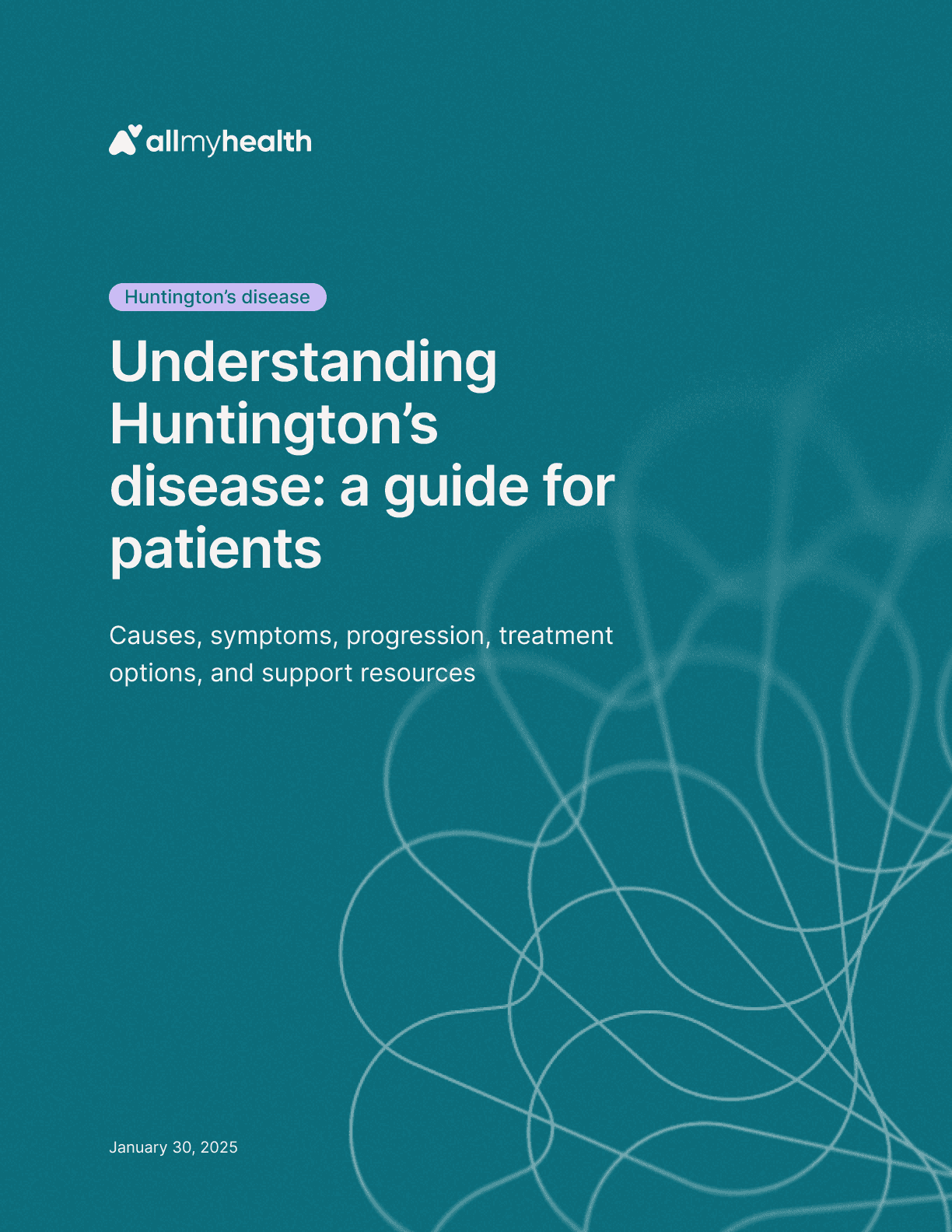
Huntington's disease
·
Understanding Huntington’s disease: a guide for patients
Jan 30, 2025
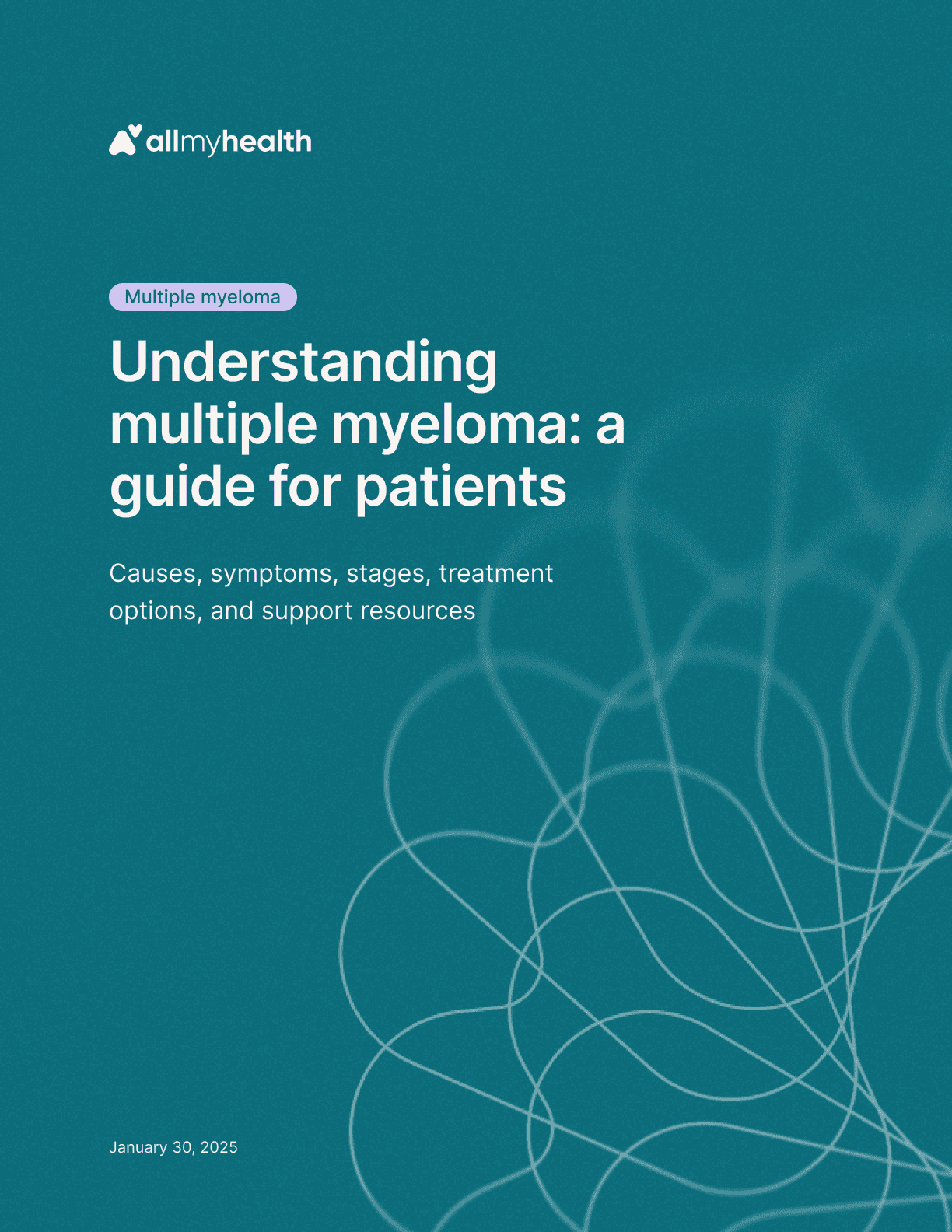
Multiple myeloma
·
Understanding multiple myeloma: a guide for patients
Jan 30, 2025

Primary biliary cholangitis
·
Understanding primary biliary cholangitis: a guide for patients
Jan 30, 2025
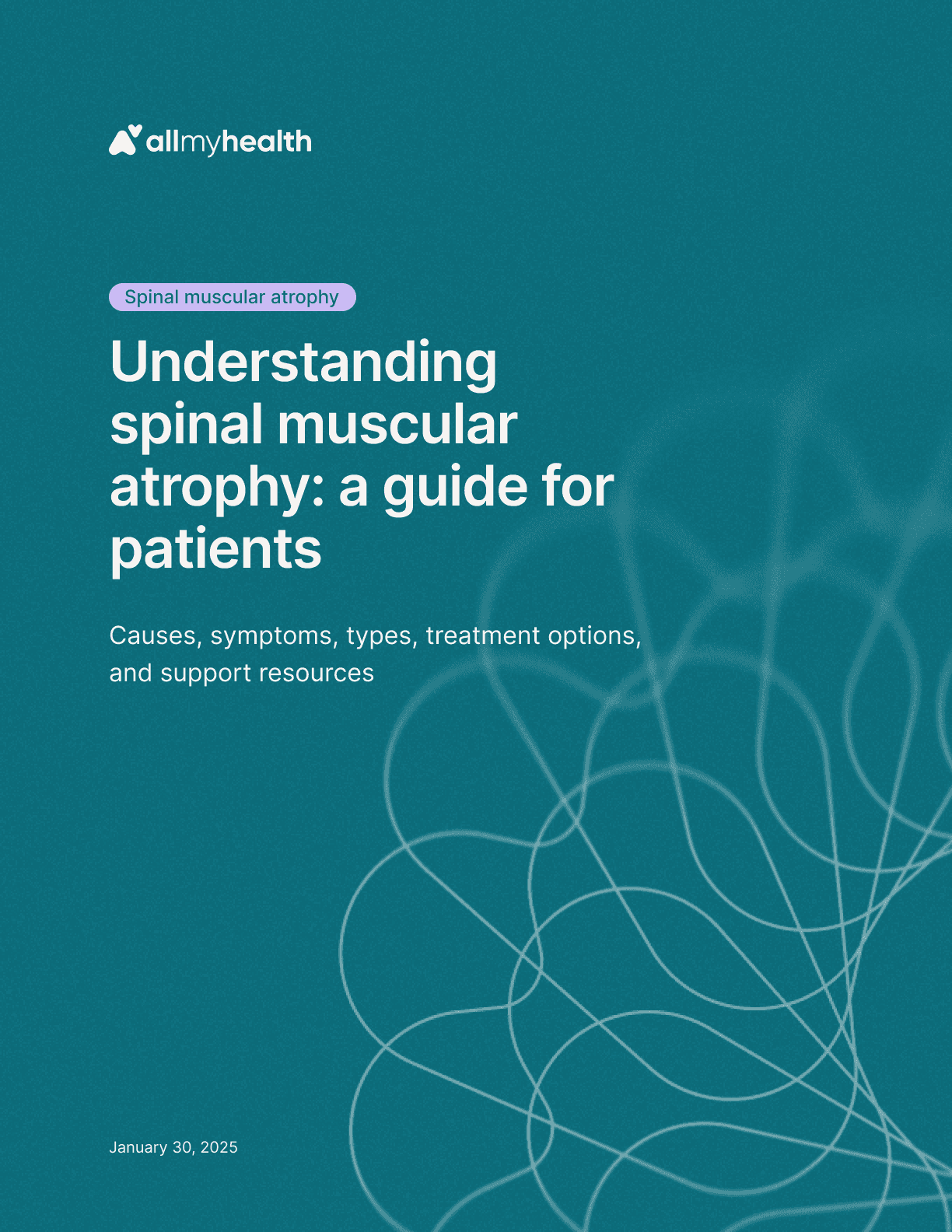
Spinal muscular atrophy
·
Understanding spinal muscular atrophy: a guide for patients
Jan 30, 2025
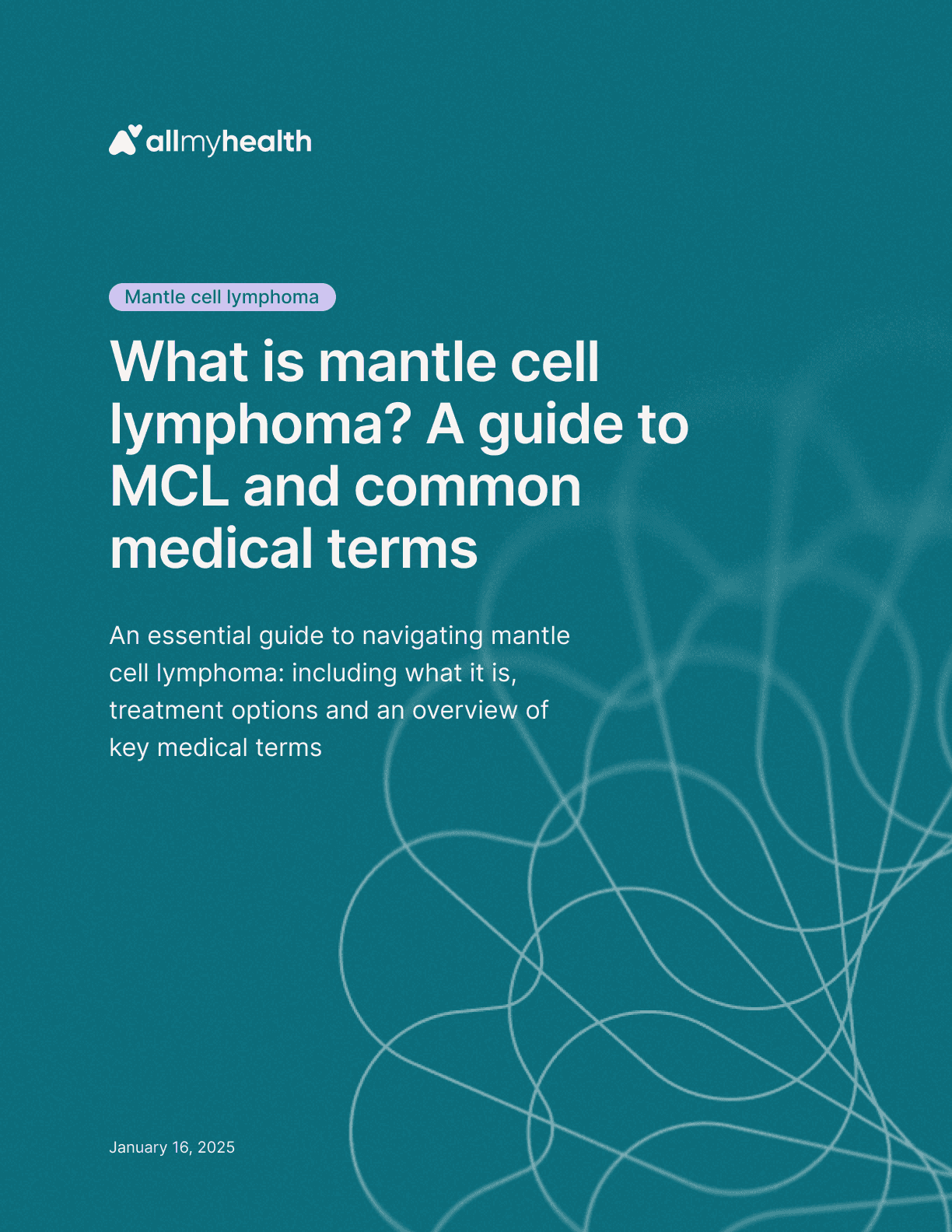
Mantle cell lymphoma
·
What is mantle cell lymphoma? A guide to MCL and common medical terms
Jan 23, 2025
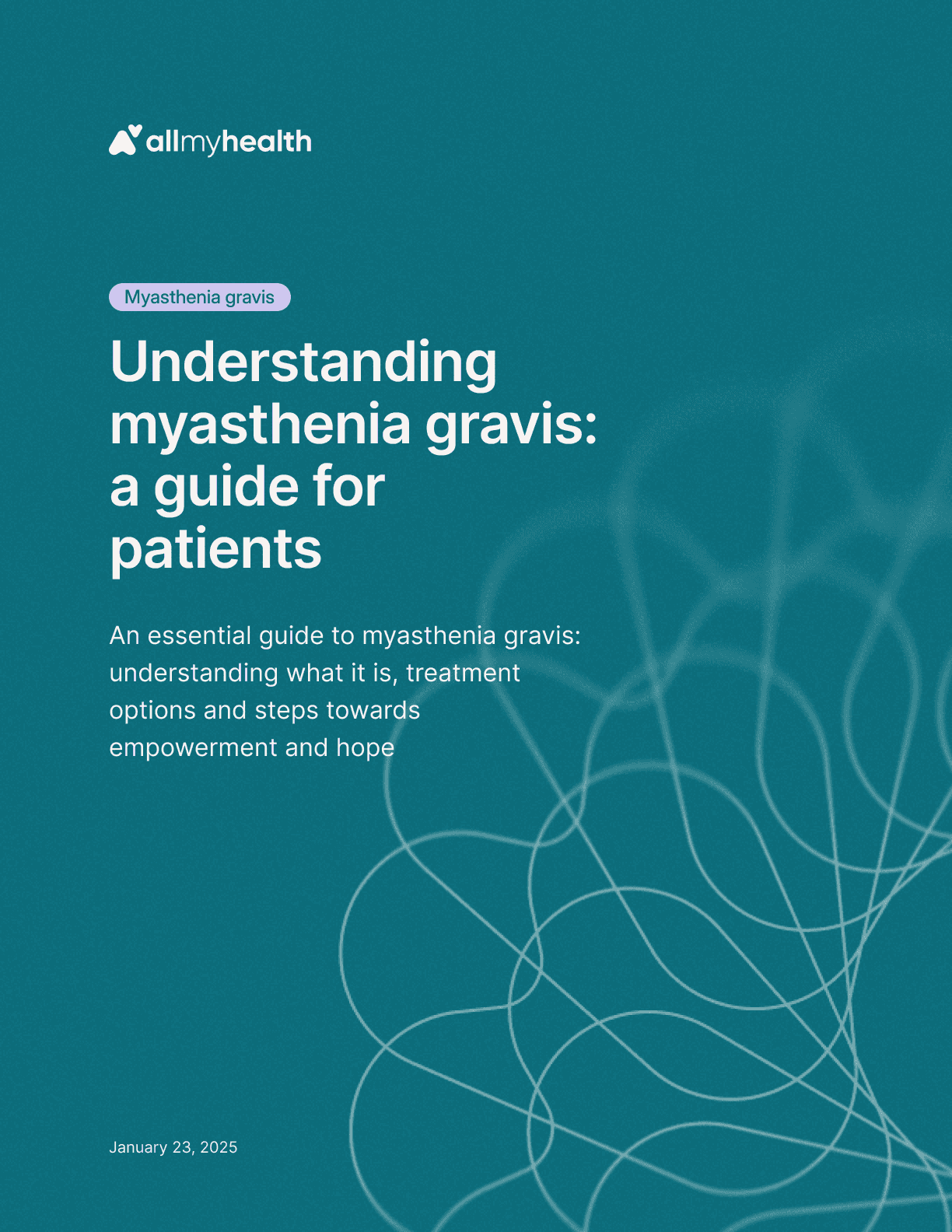
Myasthenia gravis
·
Understanding myasthenia gravis: a guide for patients
Jan 23, 2025
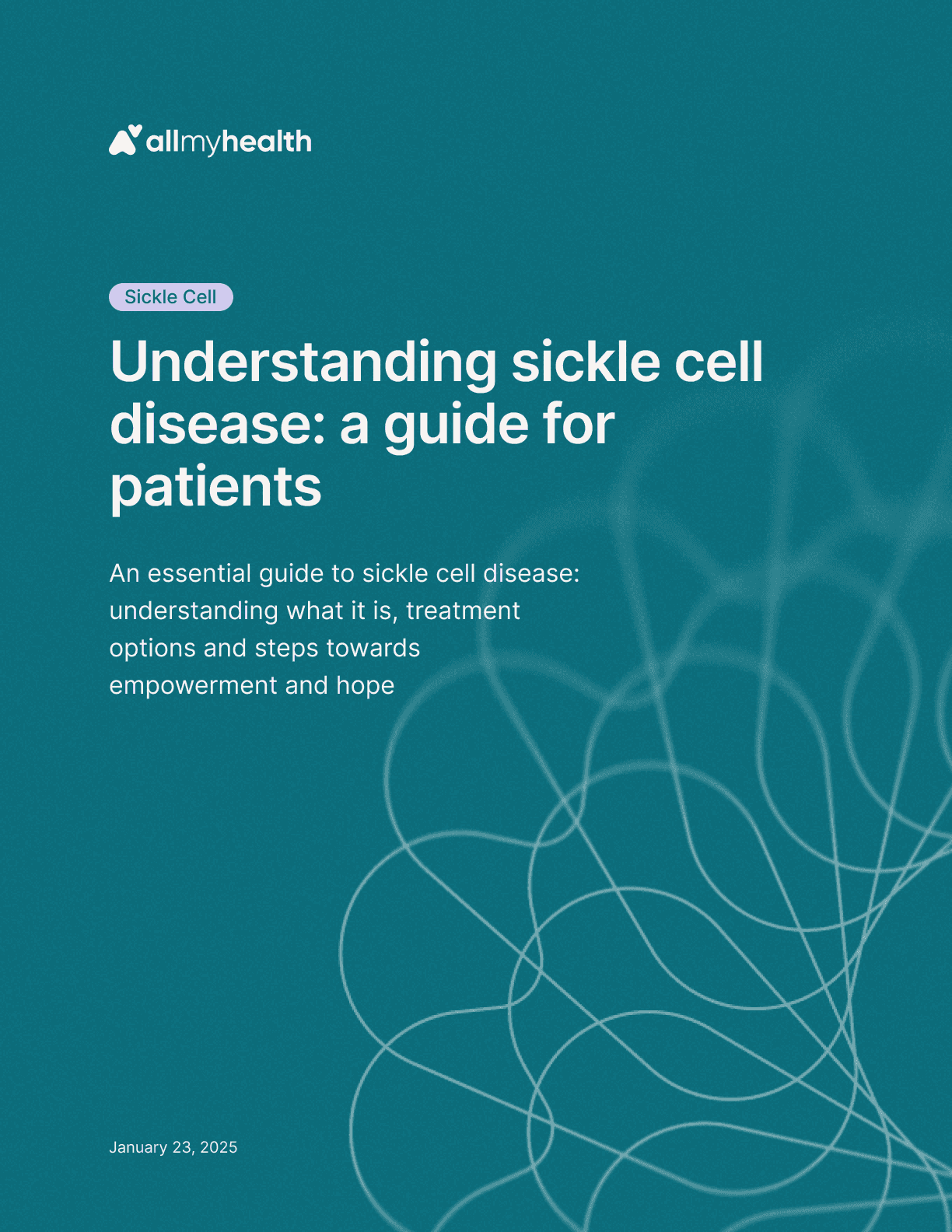
Sickle cell
·
Understanding sickle cell disease: a guide for patients
Jan 23, 2025
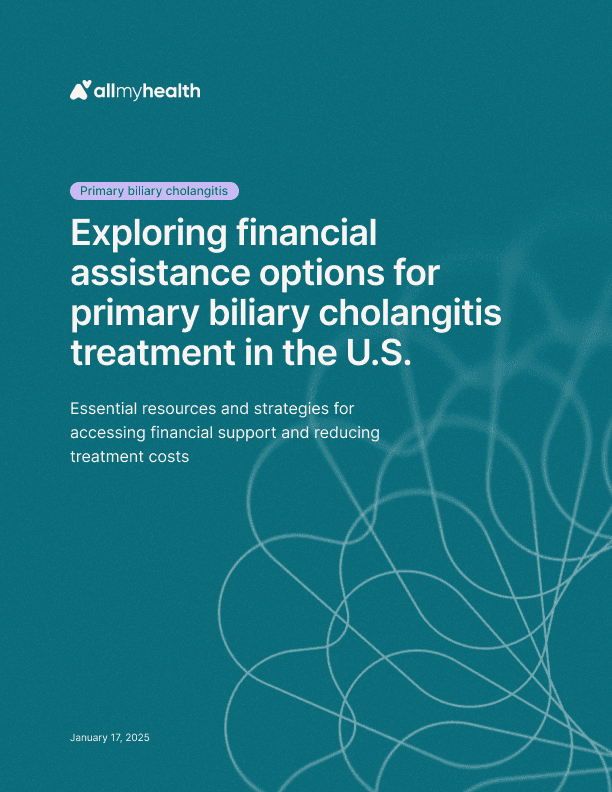
Primary biliary cholangitis
·
Exploring financial assistance options for primary biliary cholangitis treatment in the U.S.
Jan 17, 2025
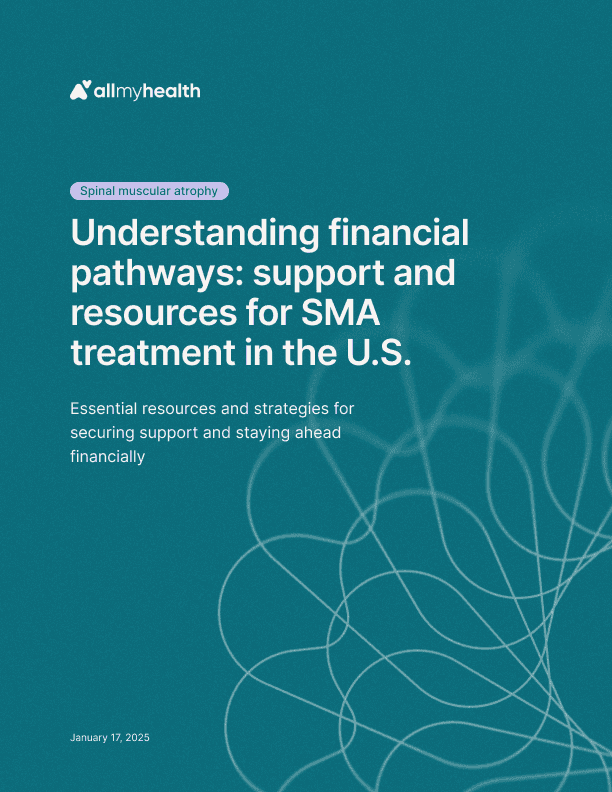
Spinal muscular atrophy
·
Understanding financial pathways: support and resources for SMA treatment in the U.S.
Jan 17, 2025
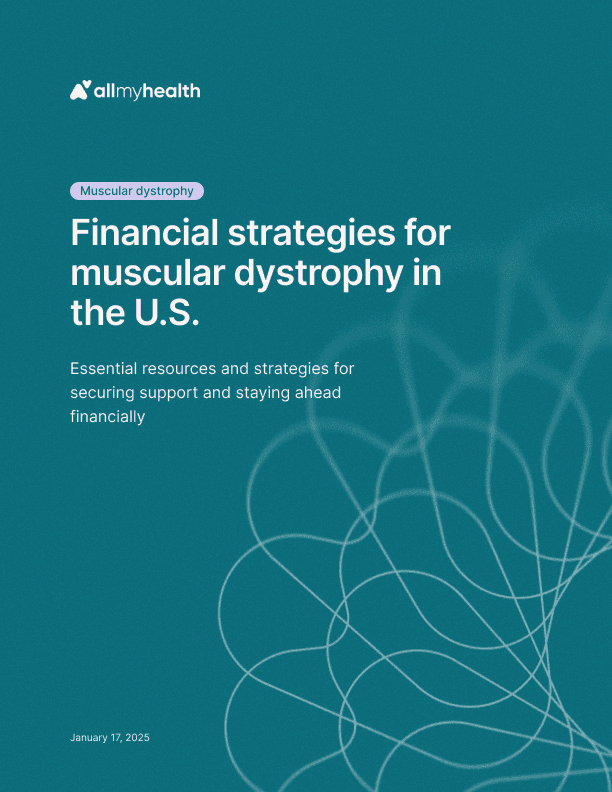
Duchenne muscular dystrophy
·
Financial strategies for muscular dystrophy in the U.S.
Jan 17, 2025

Hemophilia
·
Navigating financial assistance for hemophilia treatment in the U.S.
Jan 17, 2025
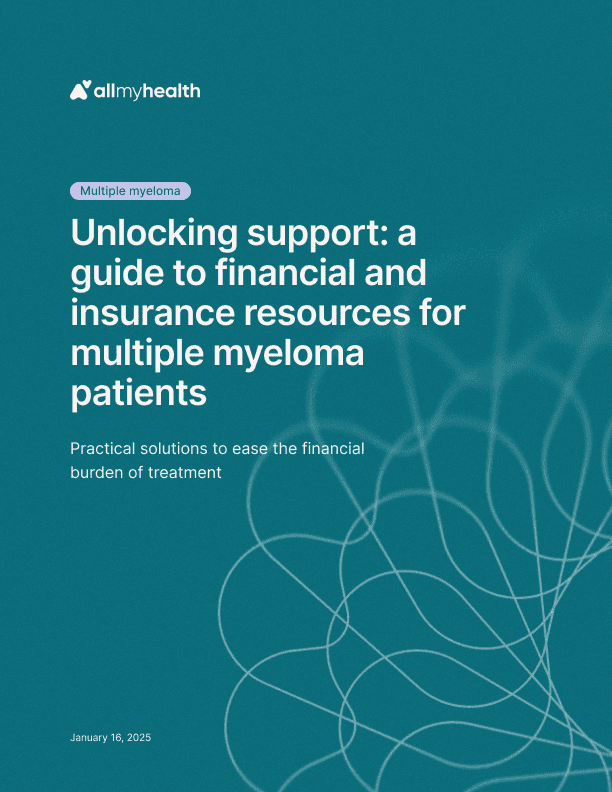
Multiple myeloma
·
Unlocking support: a guide to financial and insurance resources for multiple myeloma patients
Jan 17, 2025

Friedreich's ataxia
·
Navigating Friedreich’s ataxia in the U.S.: a practical guide to support and financial planning
Jan 17, 2025
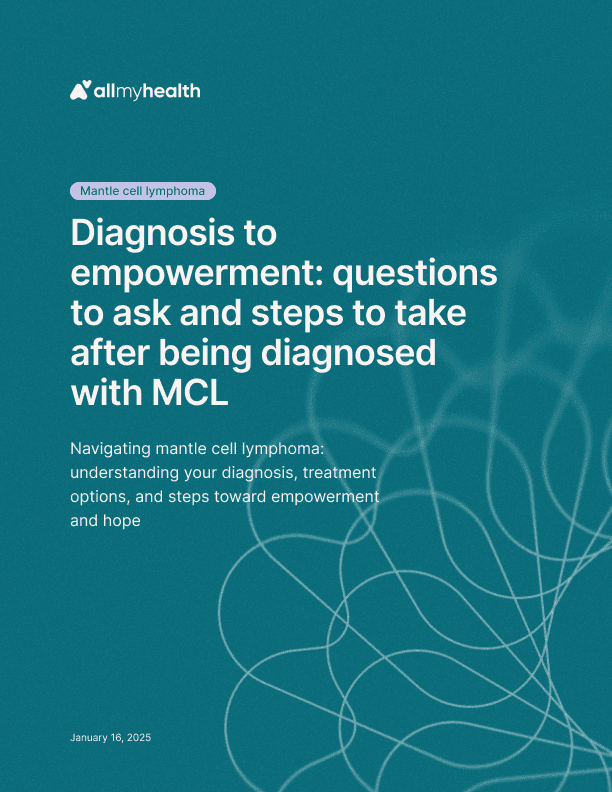
Mantle cell lymphoma
·
Diagnosis to empowerment: questions to ask and steps to take after being diagnosed with MCL
Jan 16, 2025
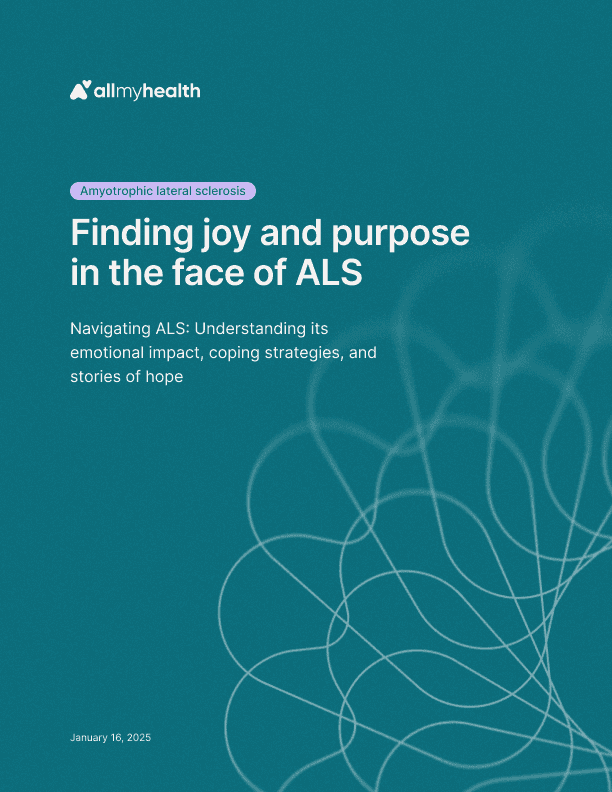
Amyotrophic lateral sclerosis
·
Finding joy and purpose in the face of ALS
Jan 16, 2025
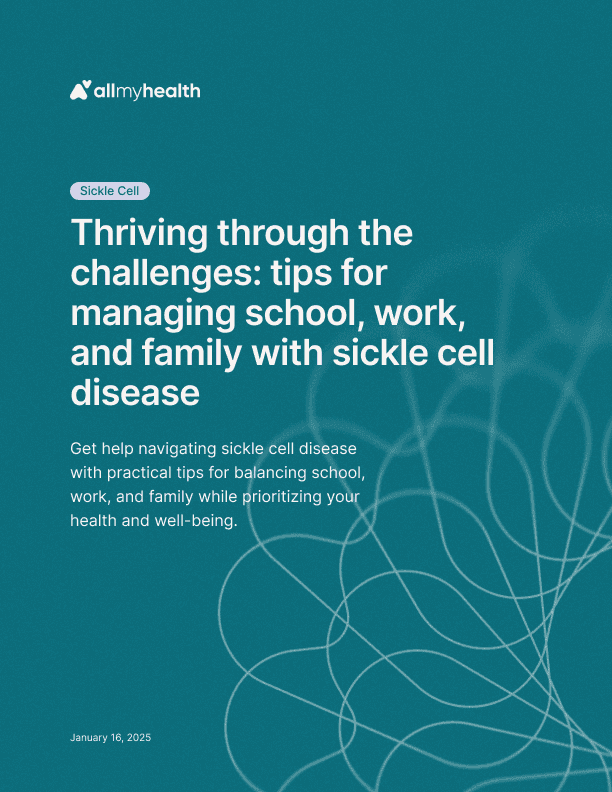
Sickle cell
·
Thriving through the challenges: tips for managing school, work, and family with sickle cell disease
Jan 16, 2025
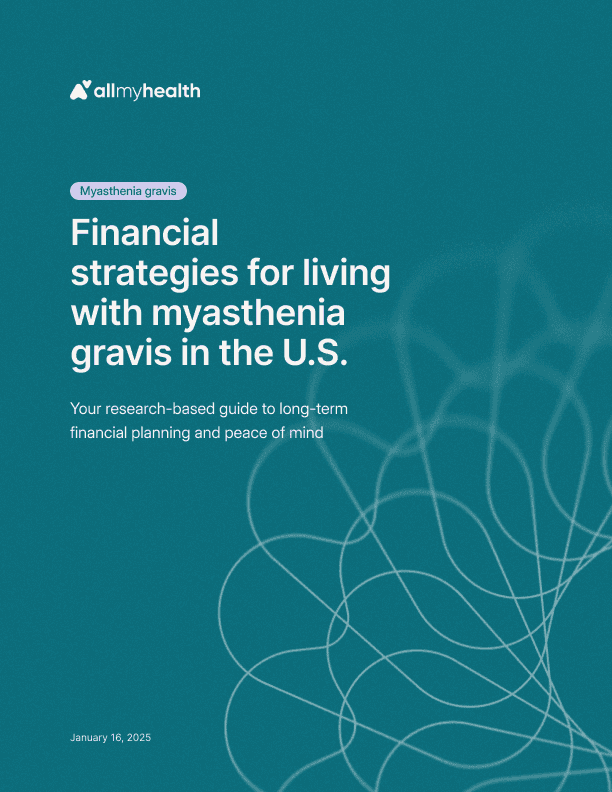
Myasthenia gravis
·
Financial strategies for living with myasthenia gravis in the U.S.: a guide to long-term planning
Jan 16, 2025